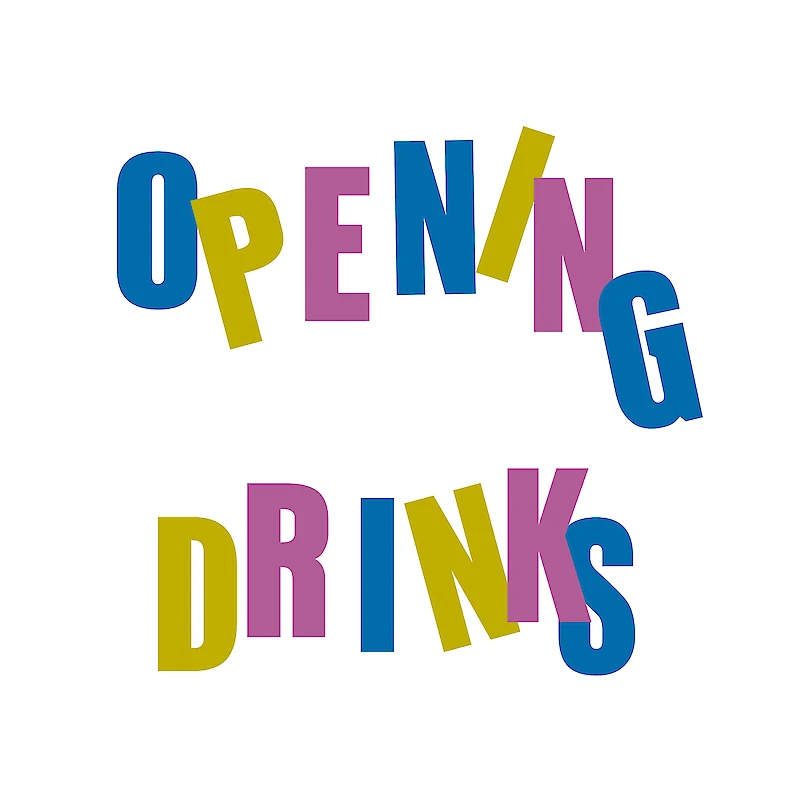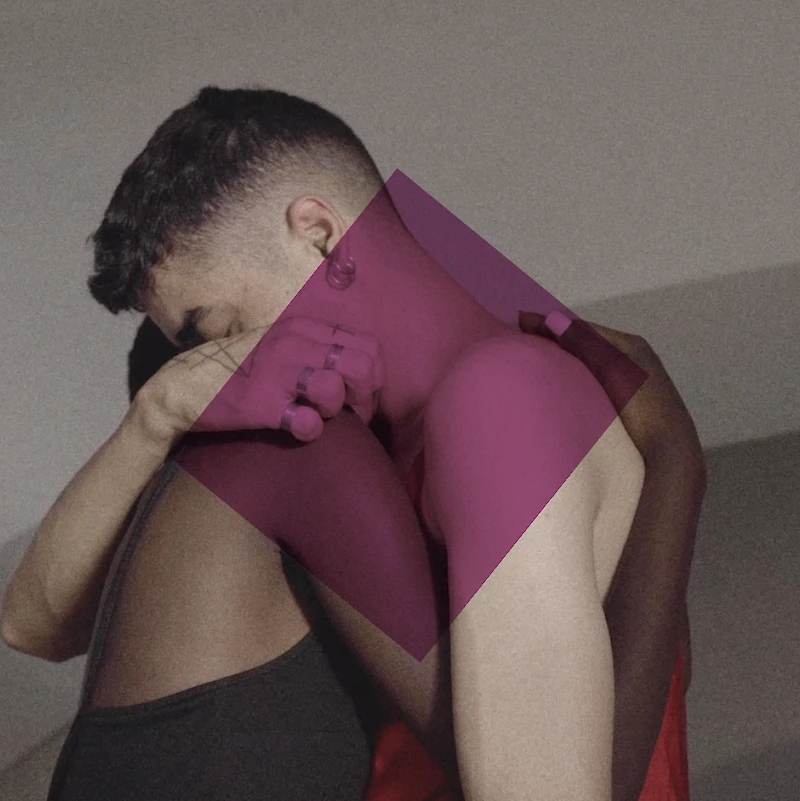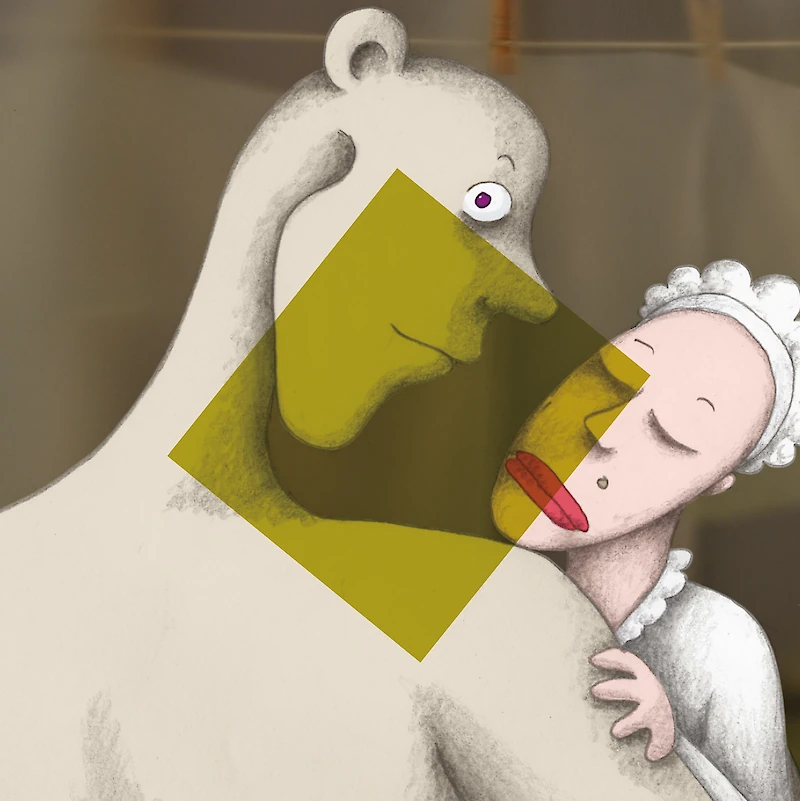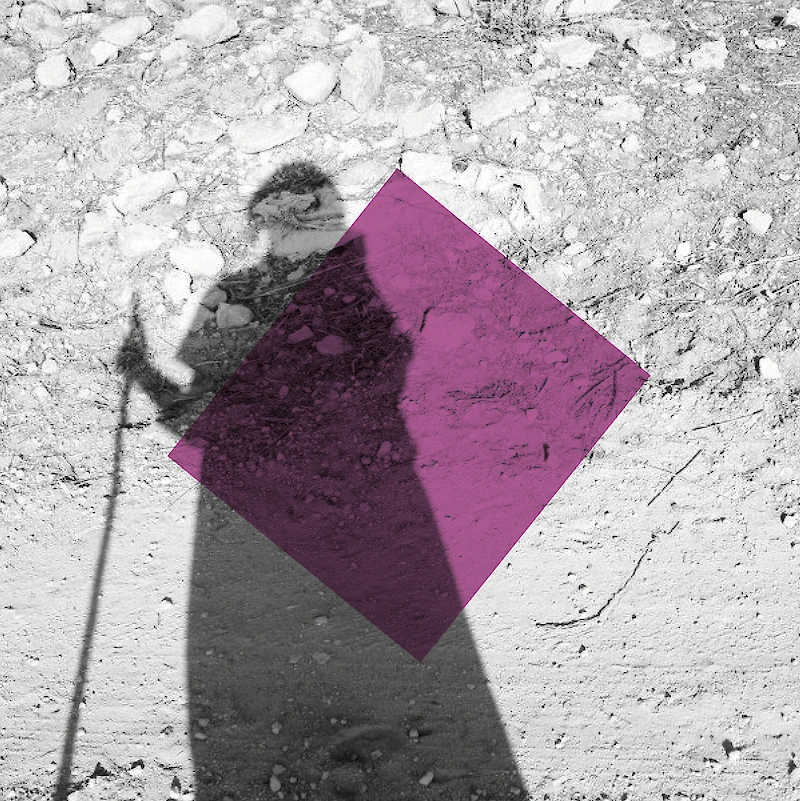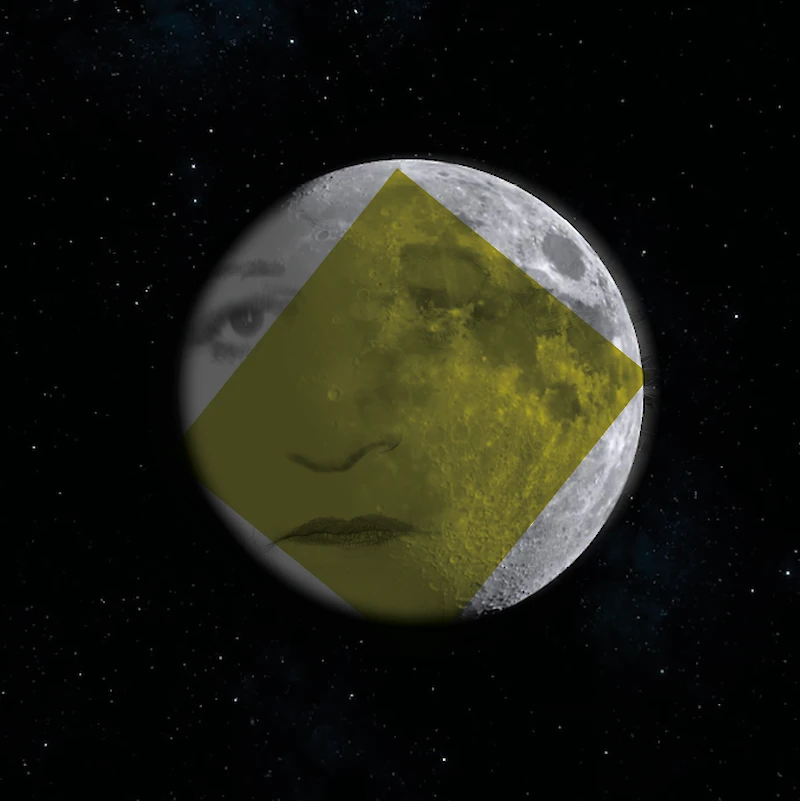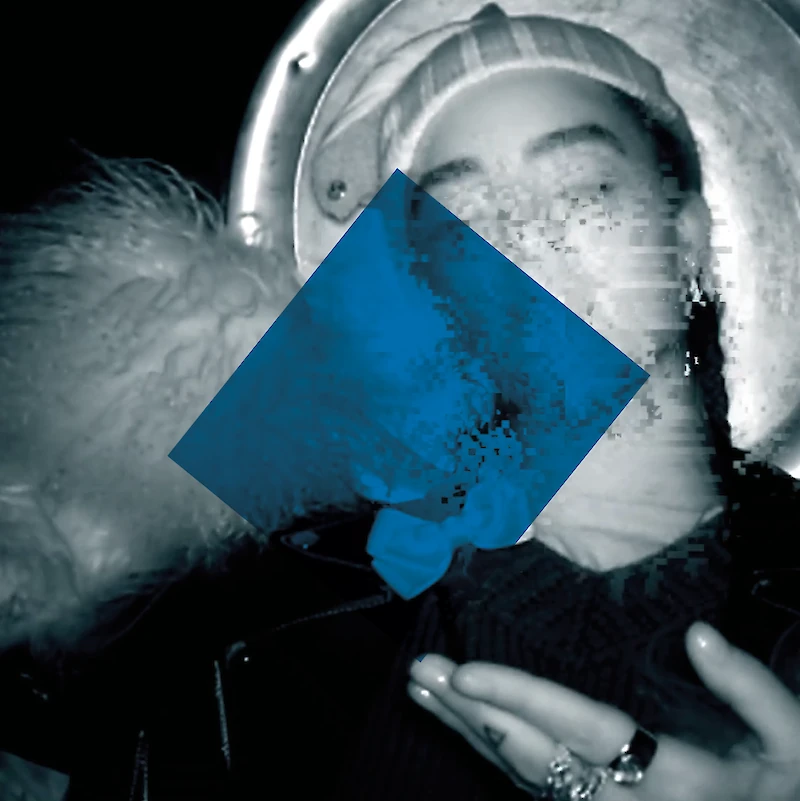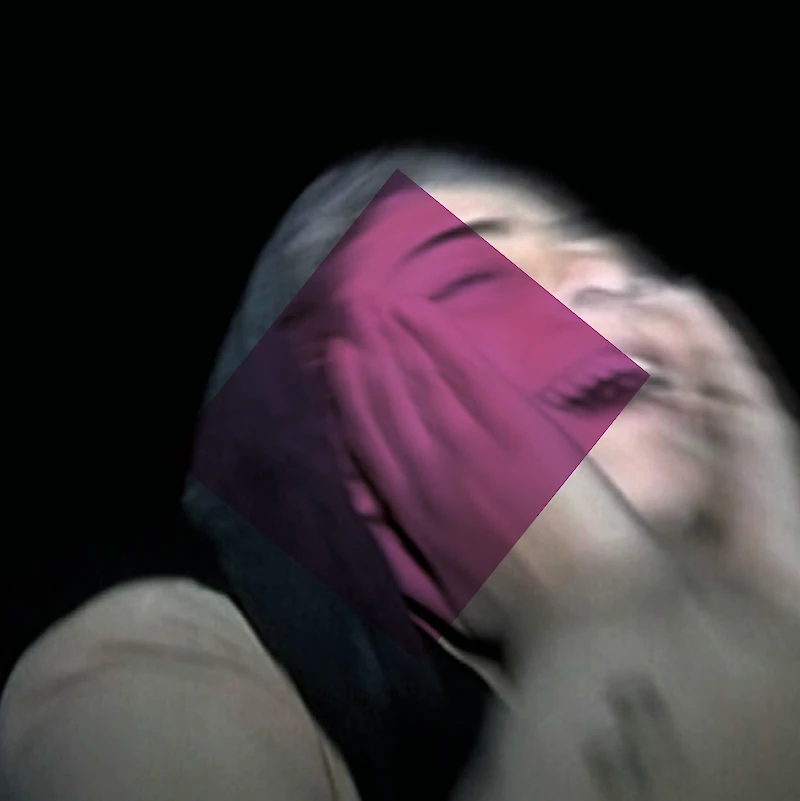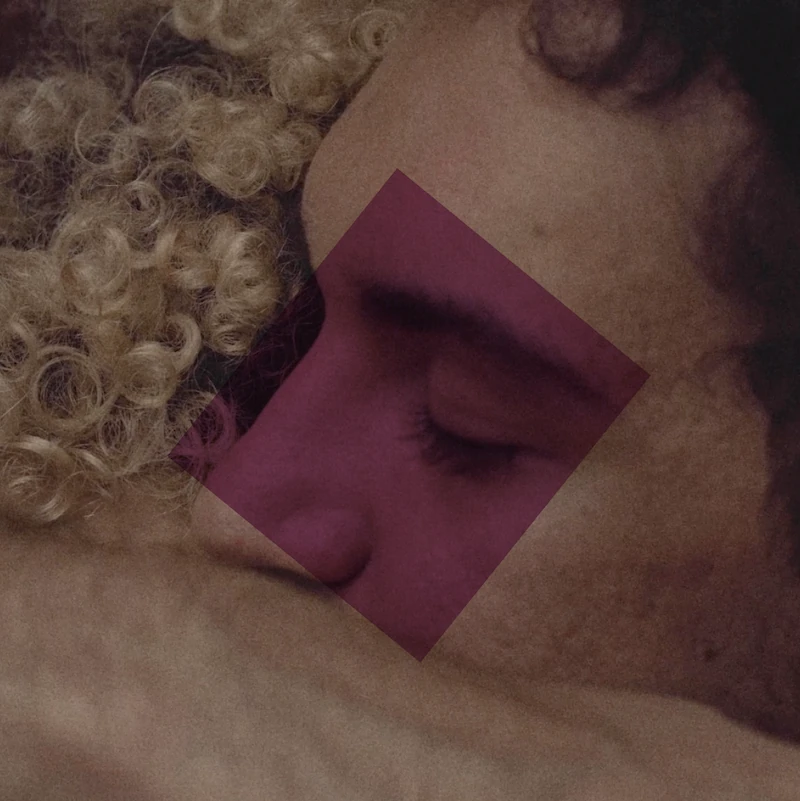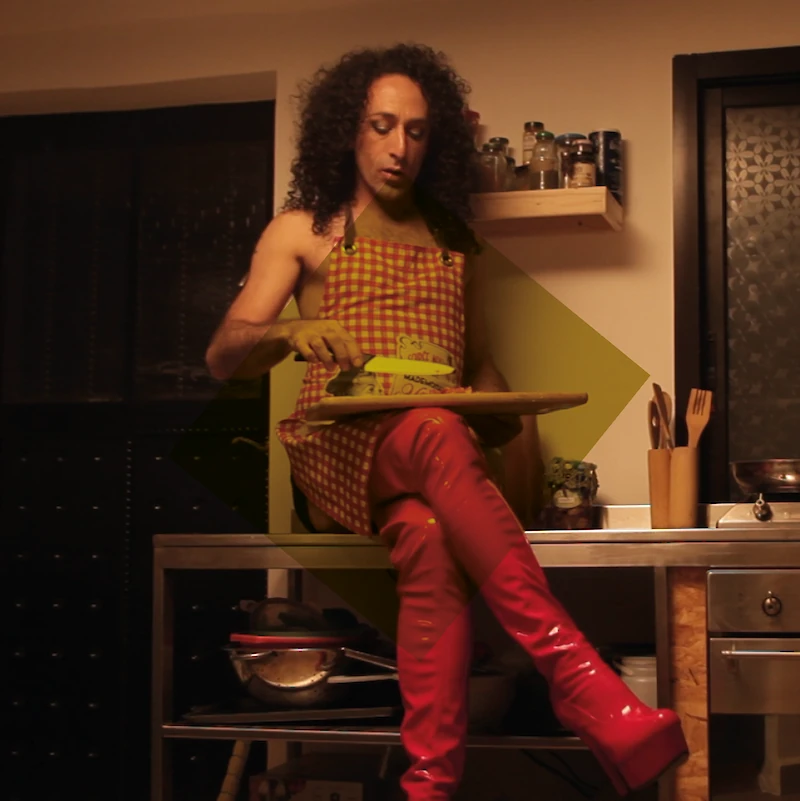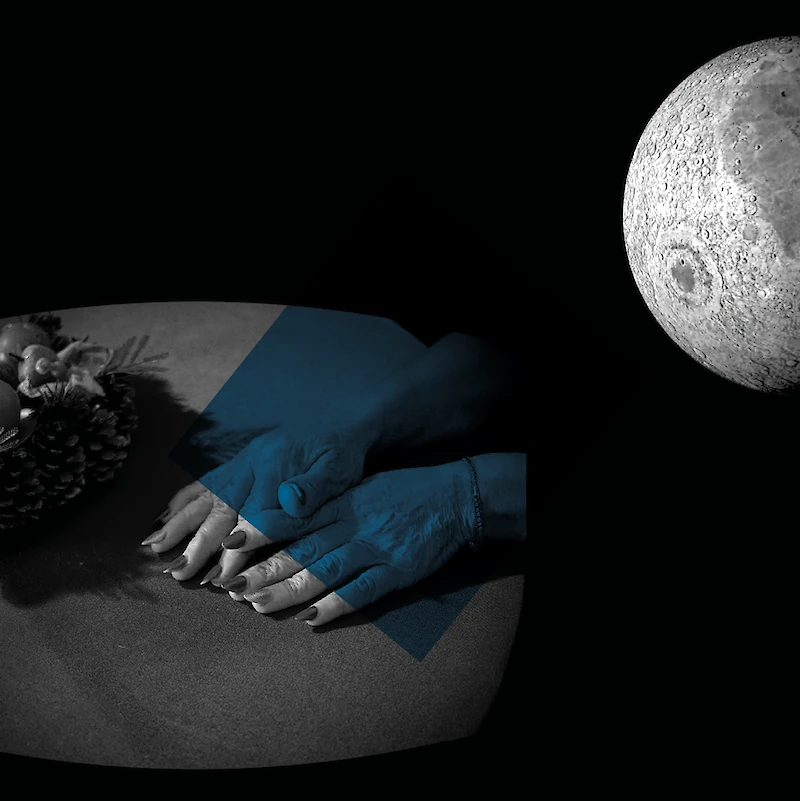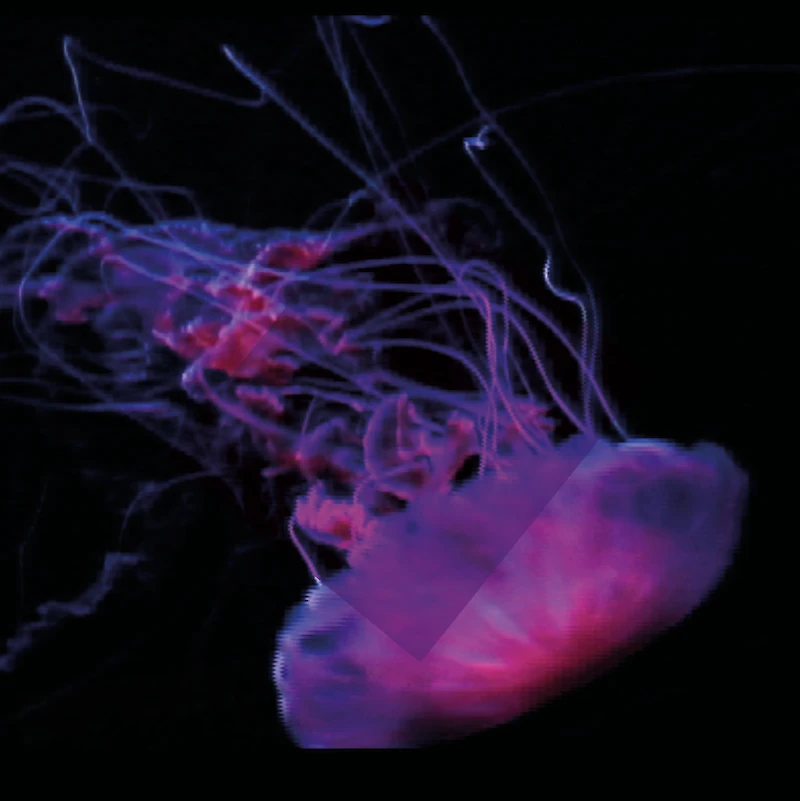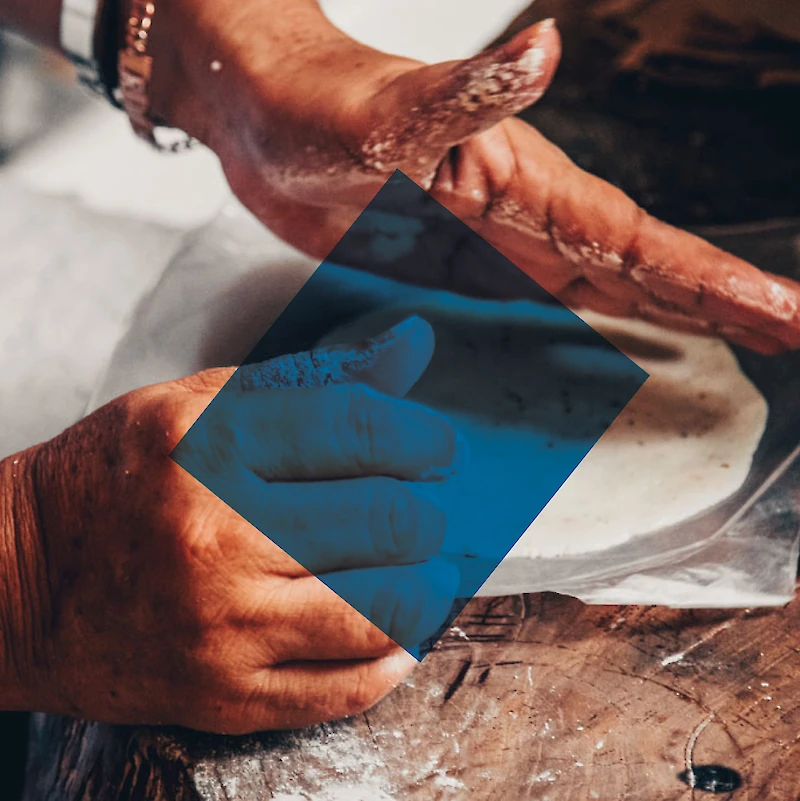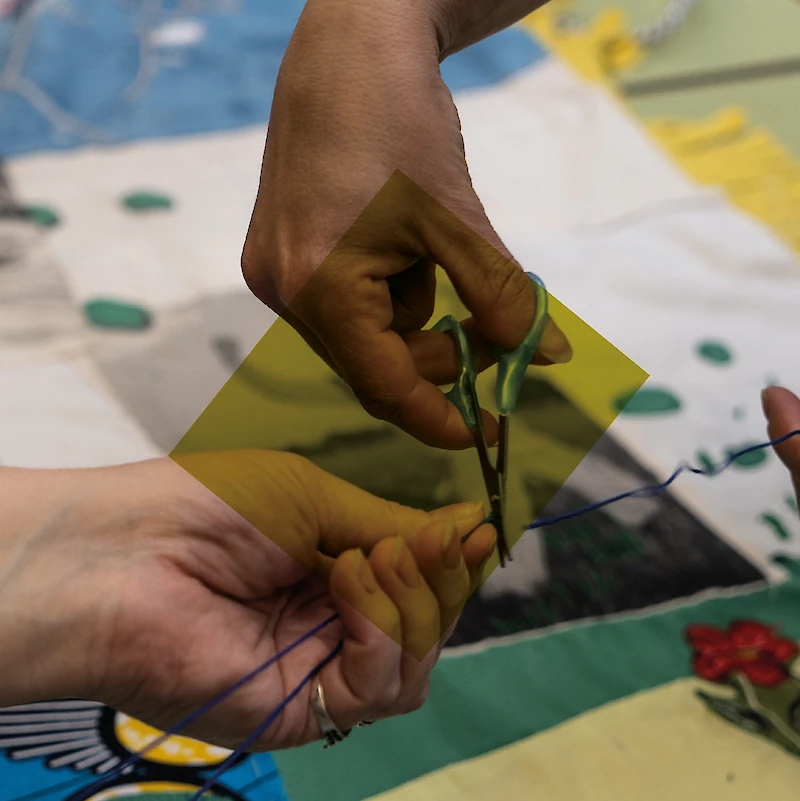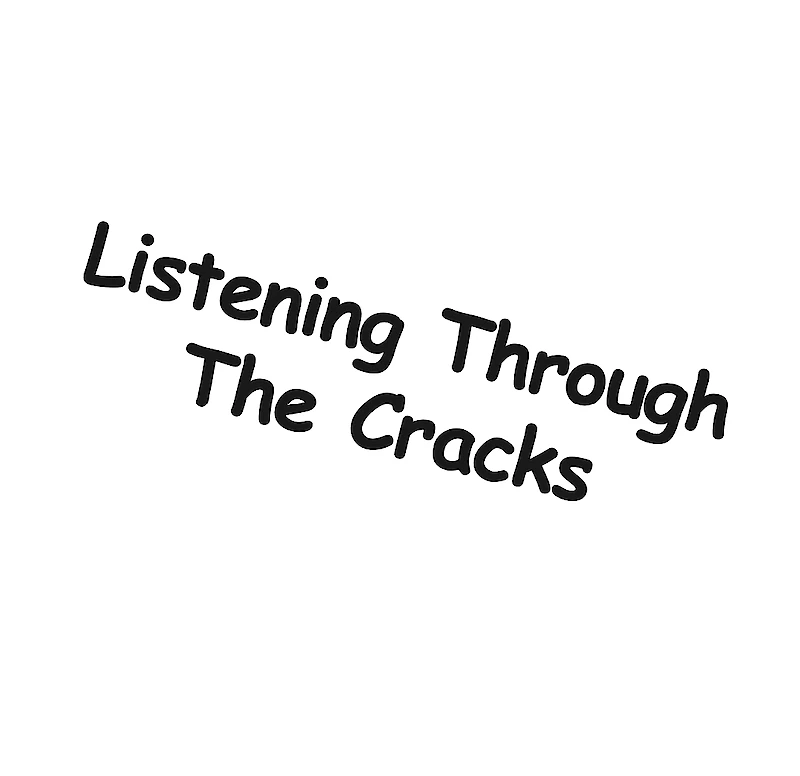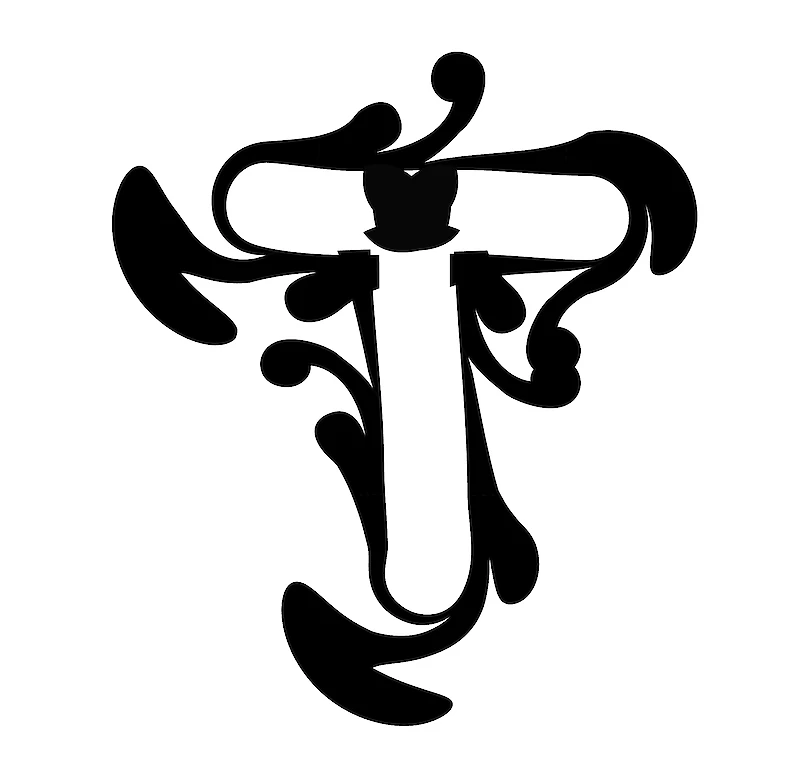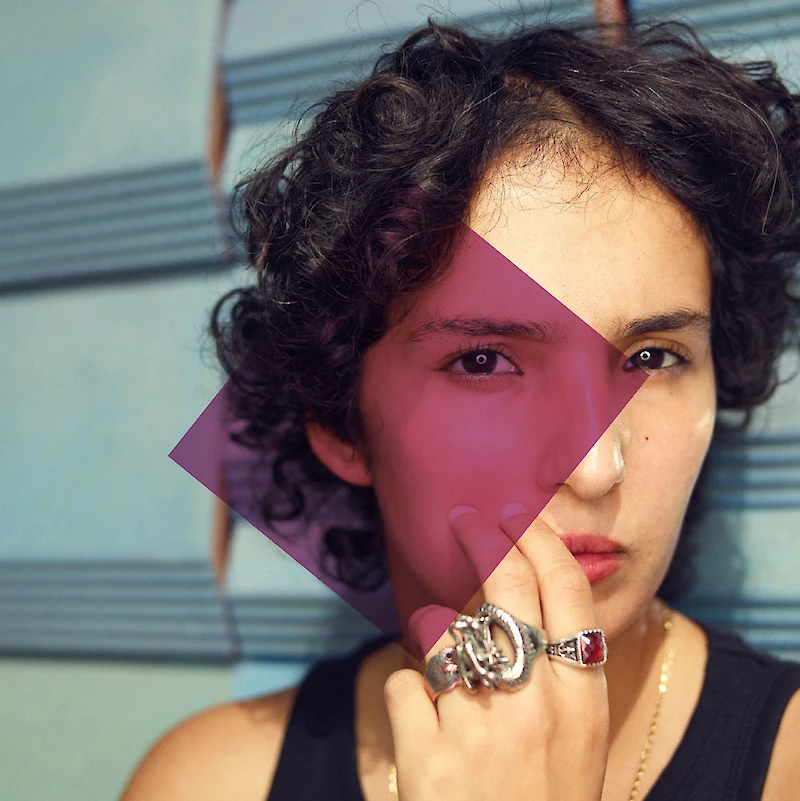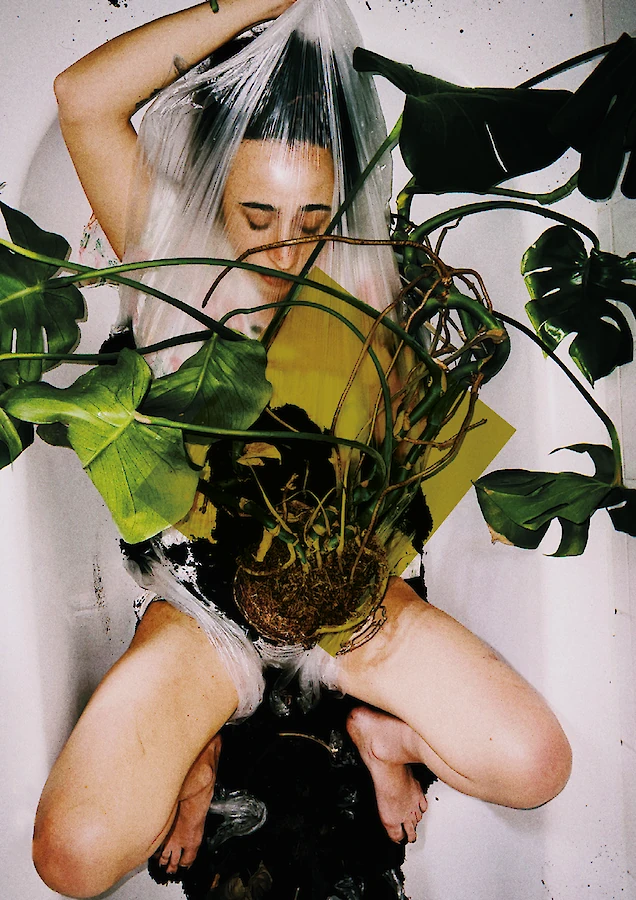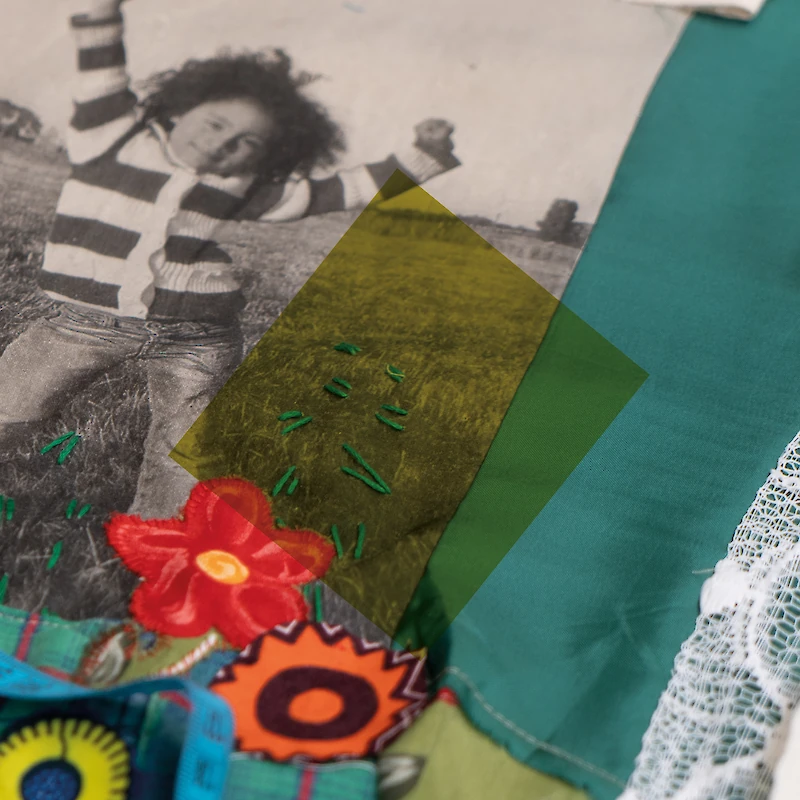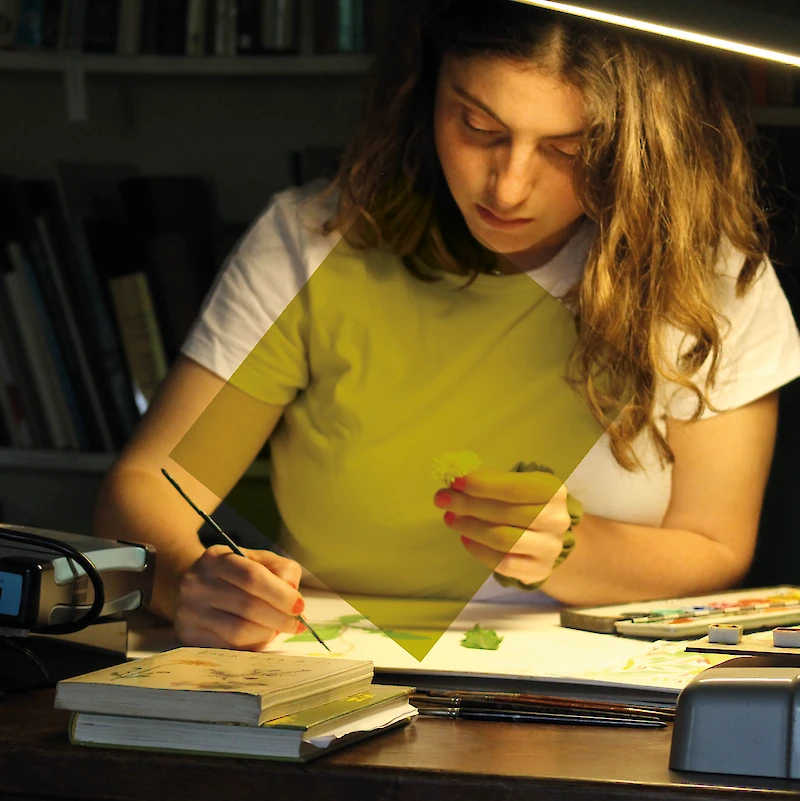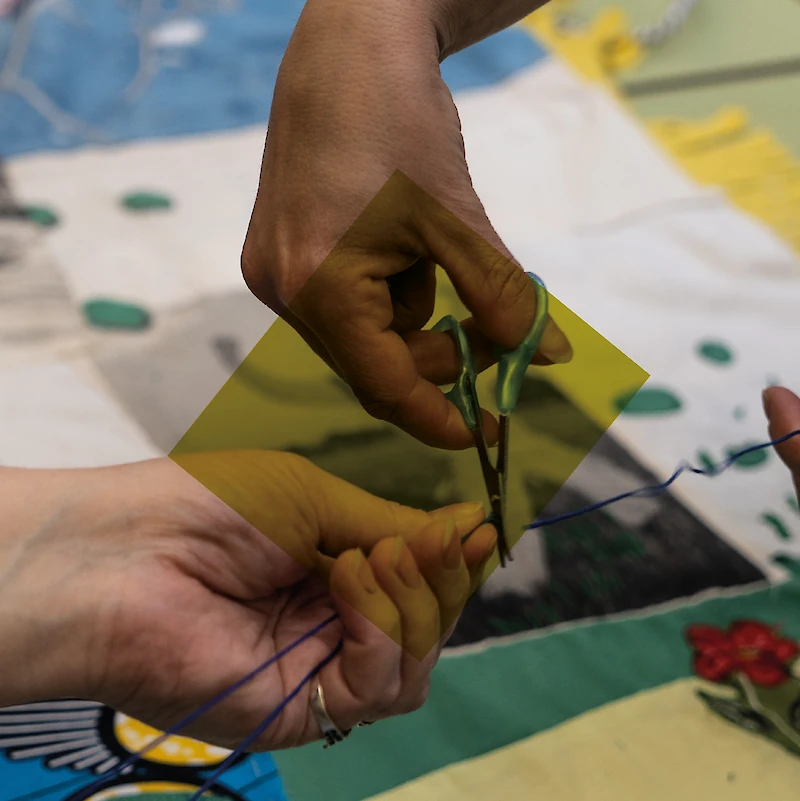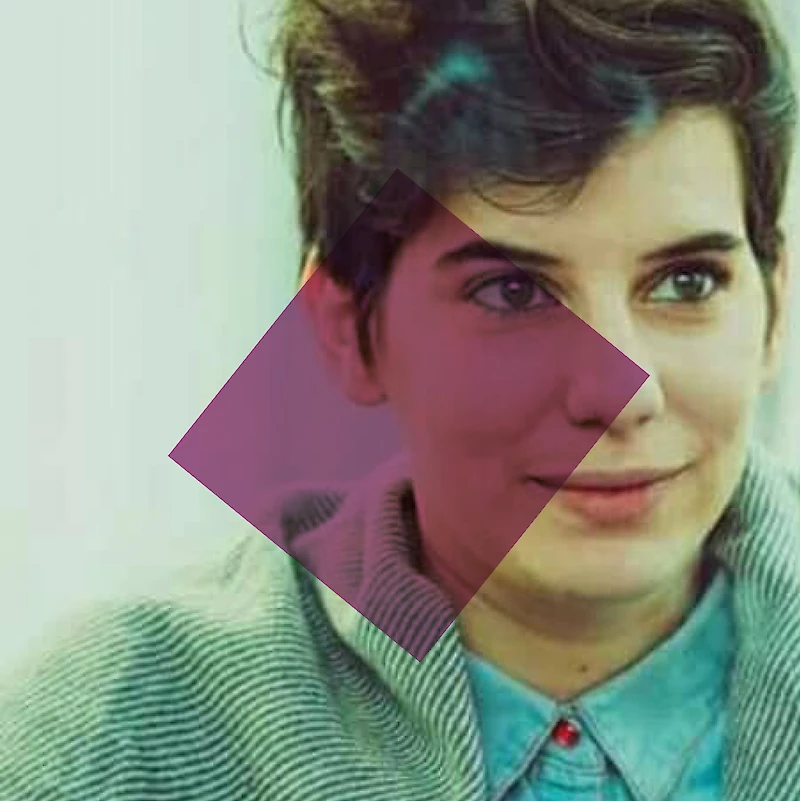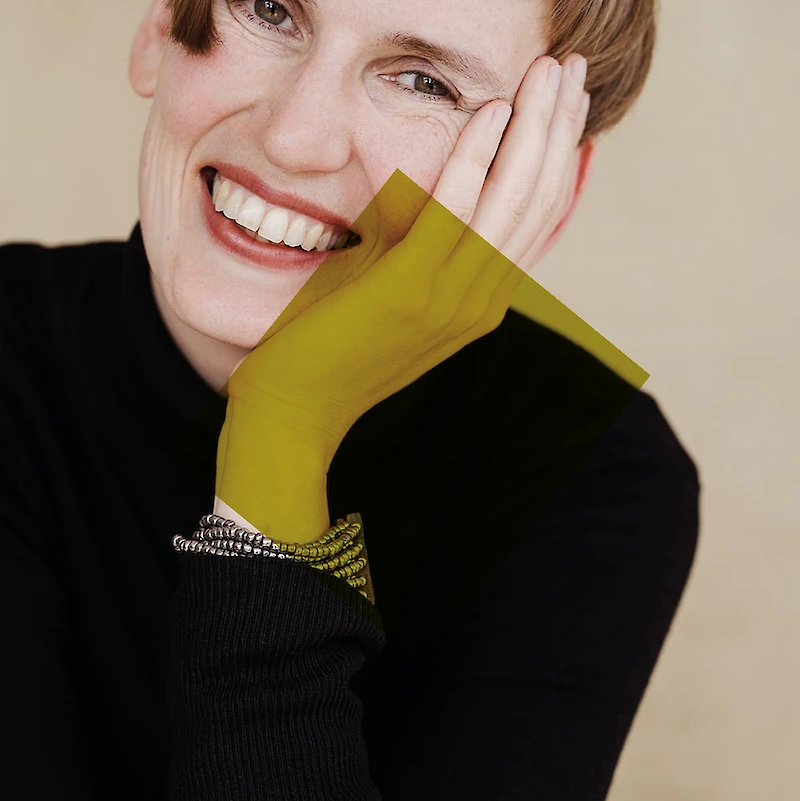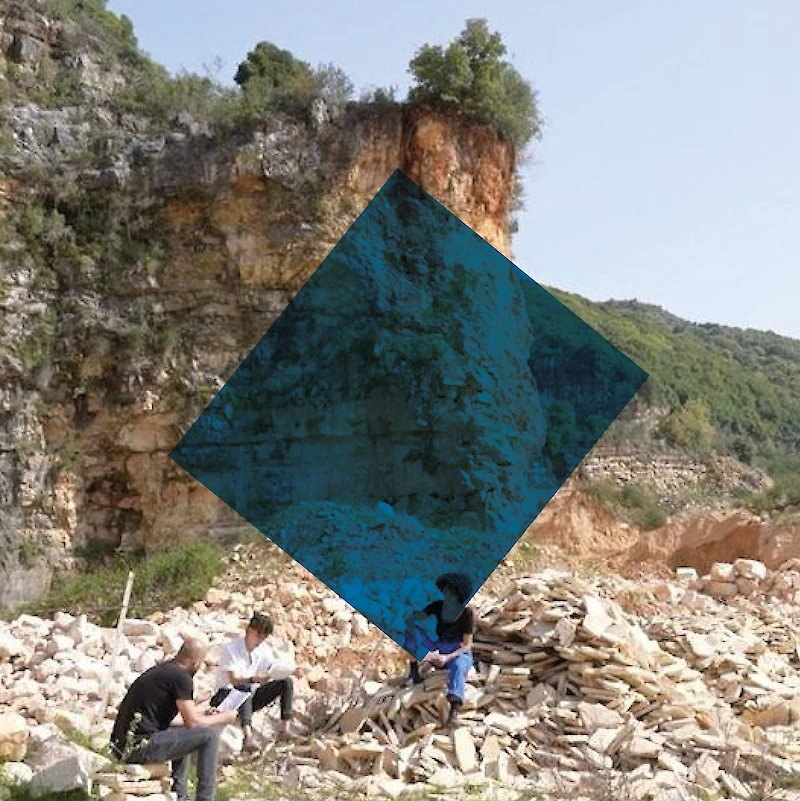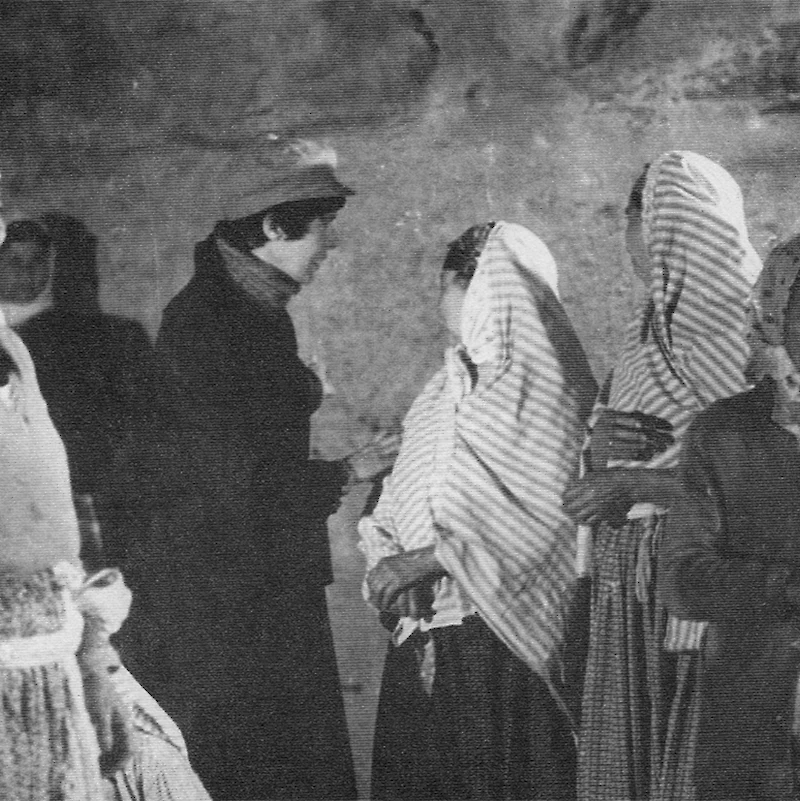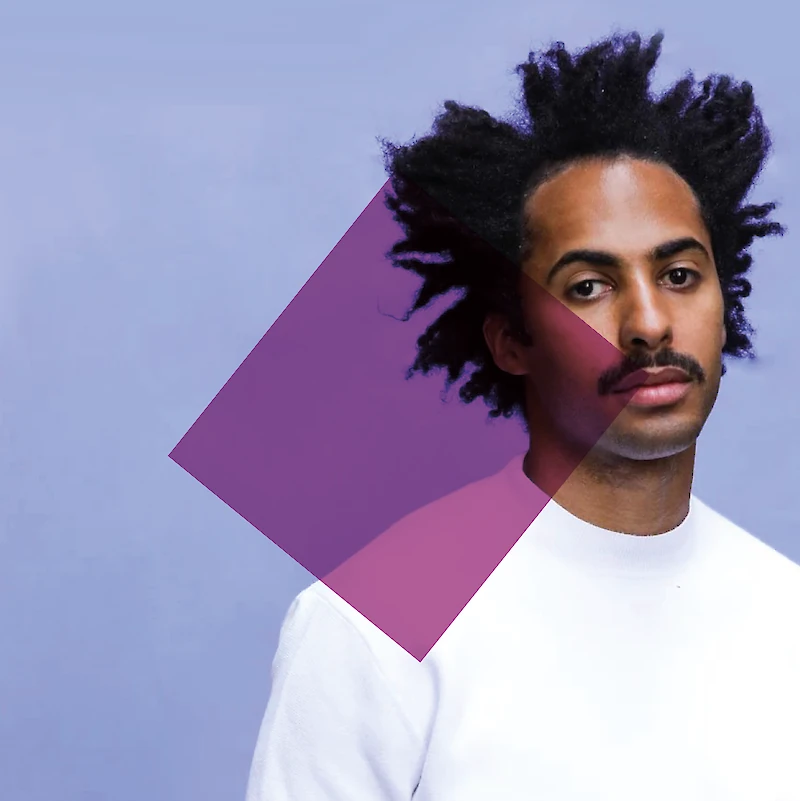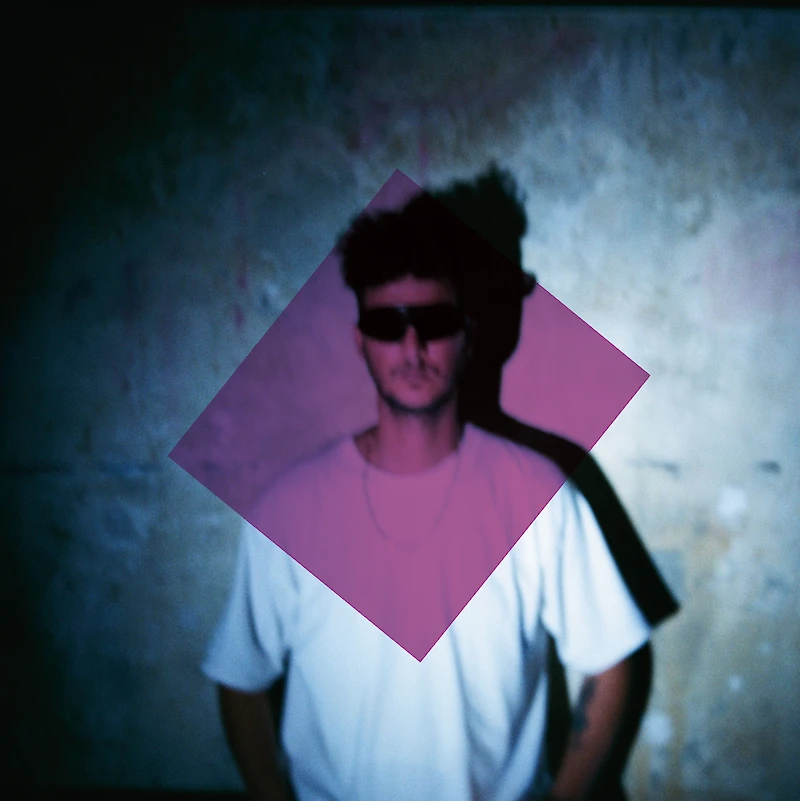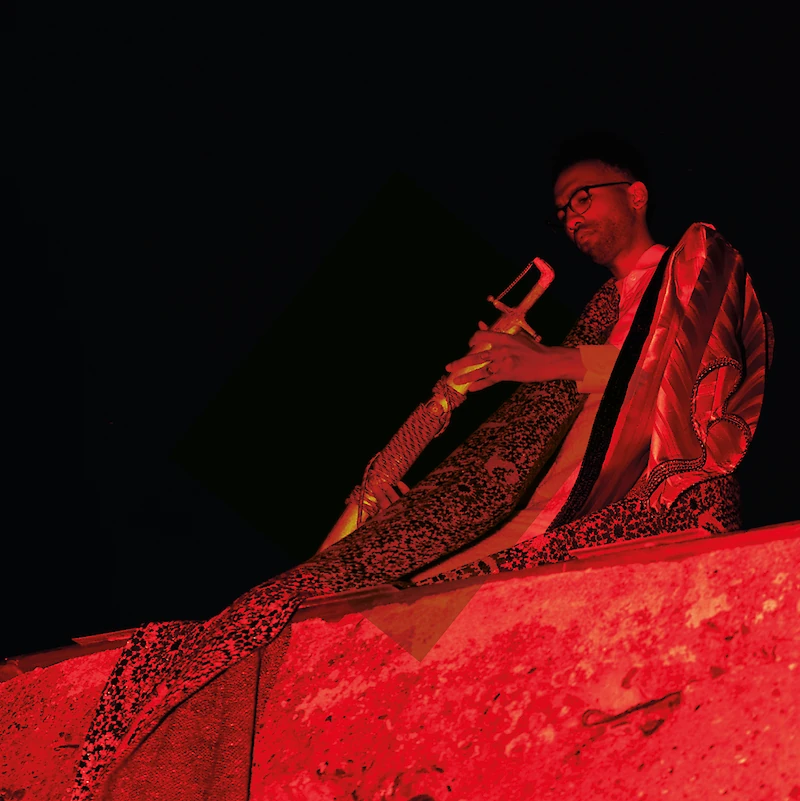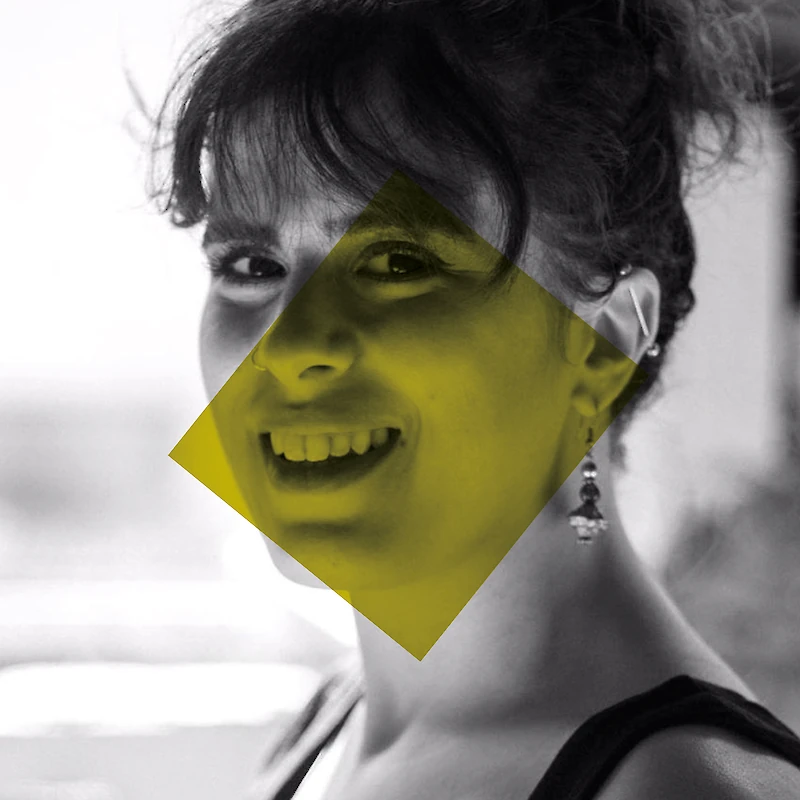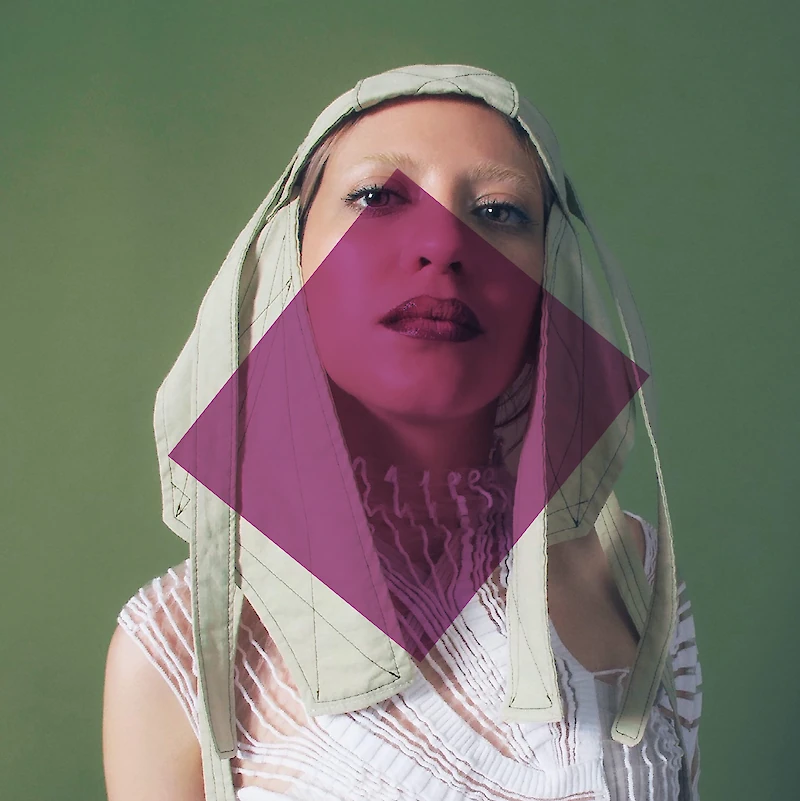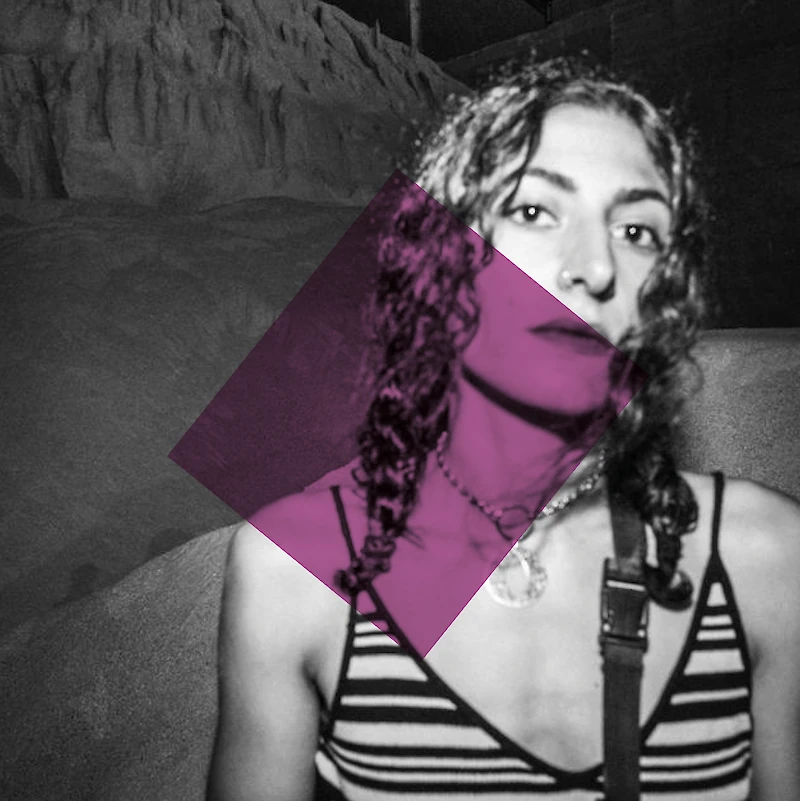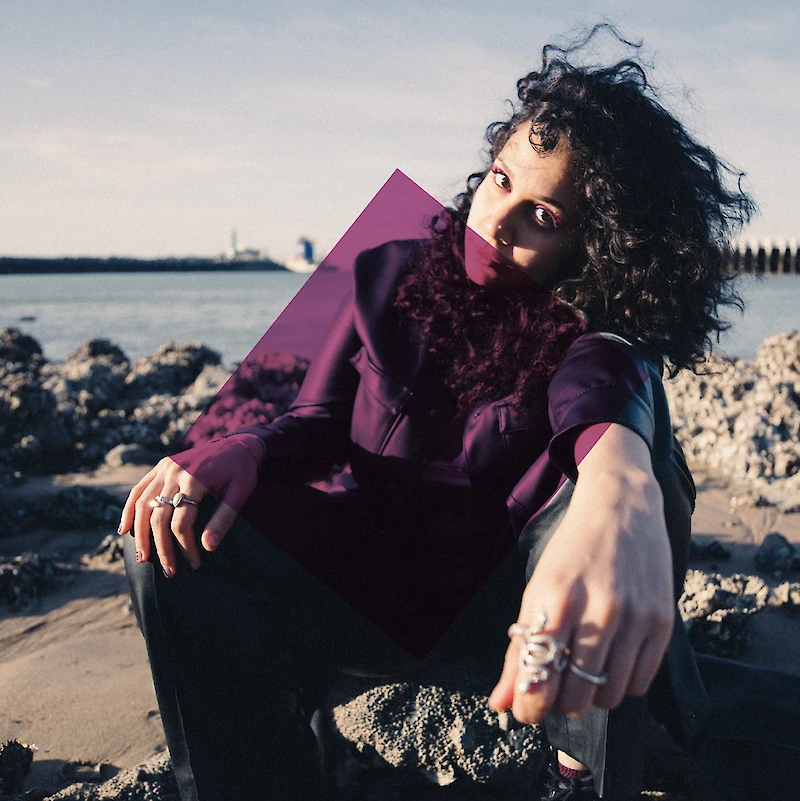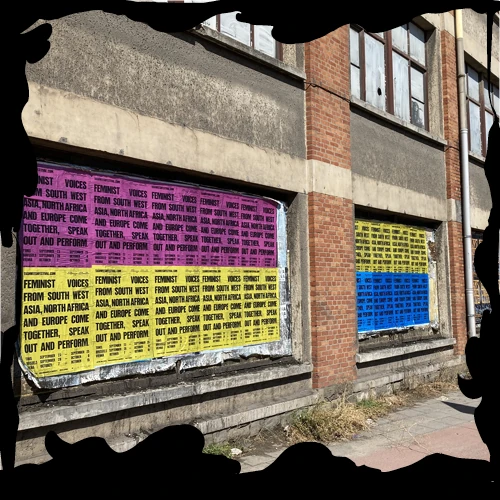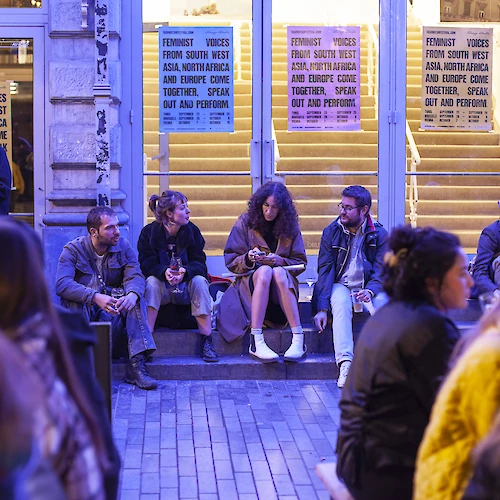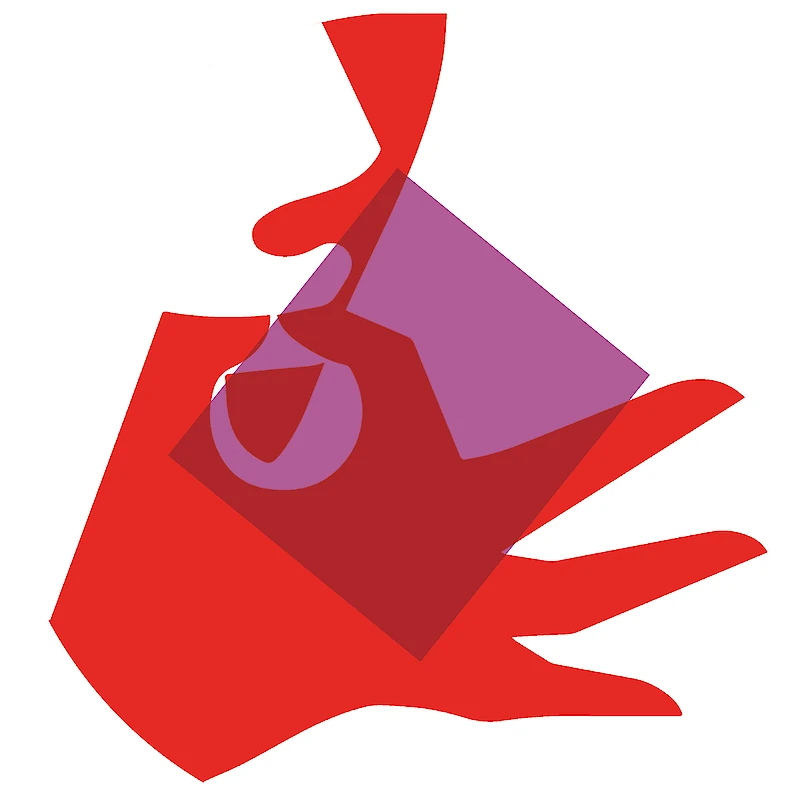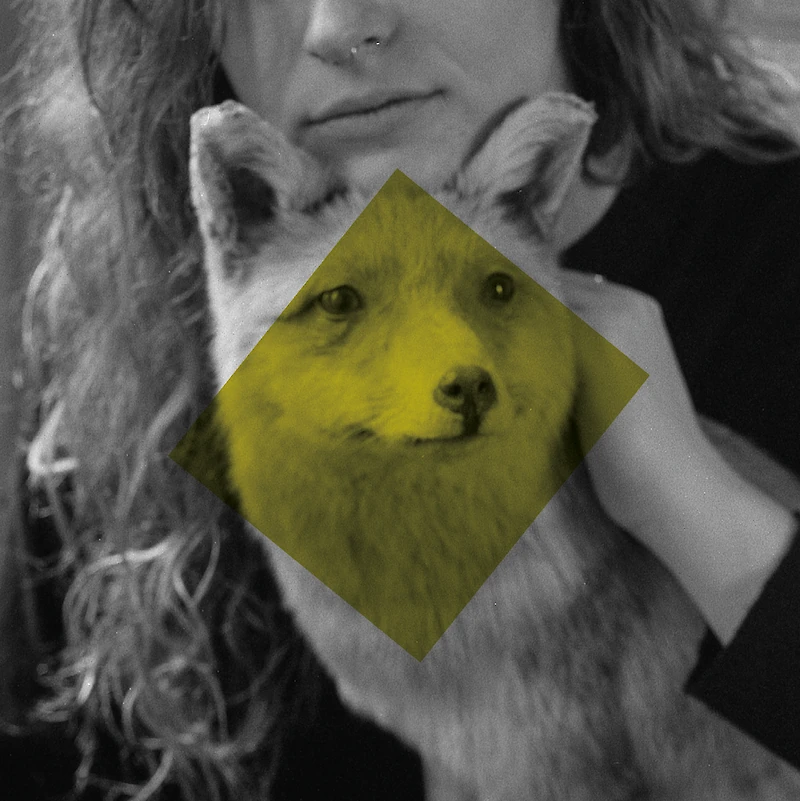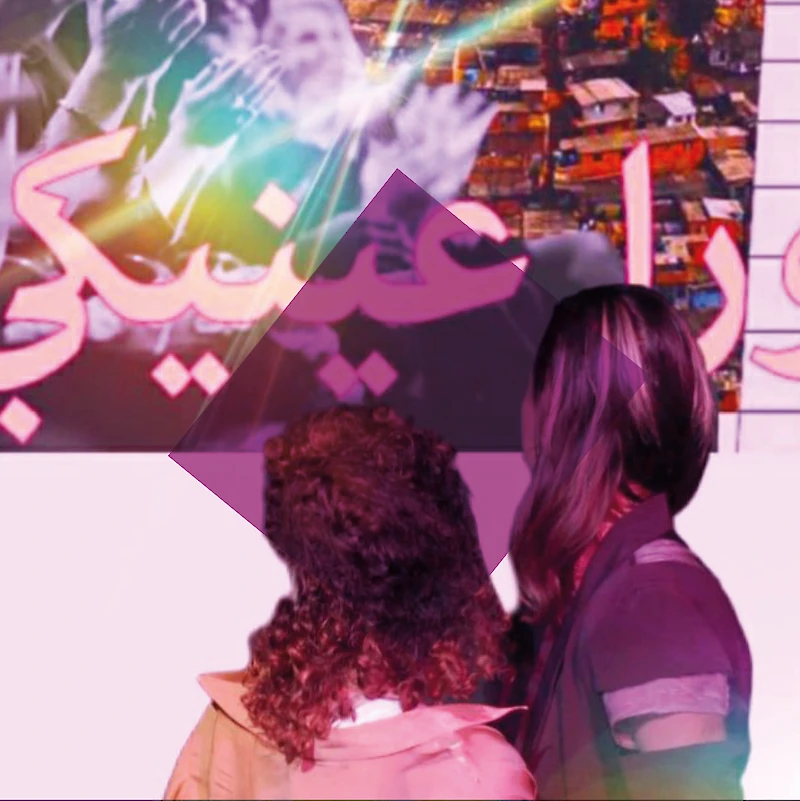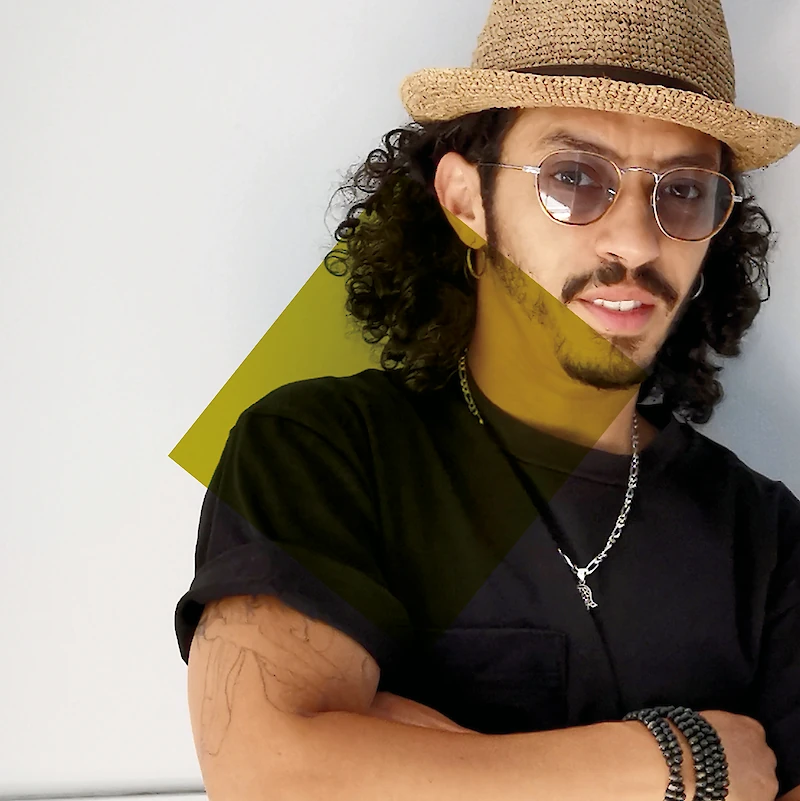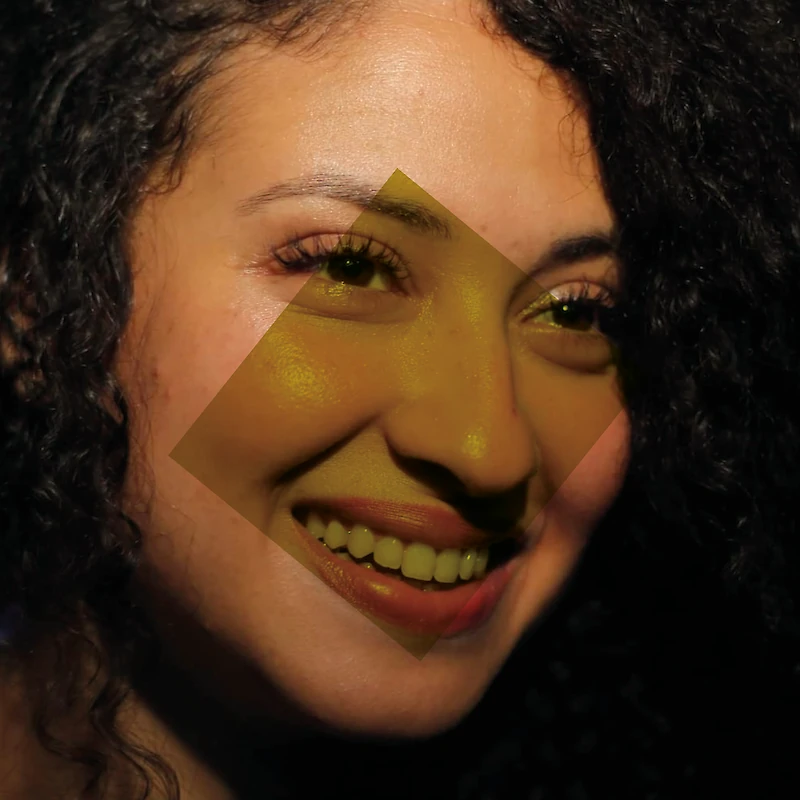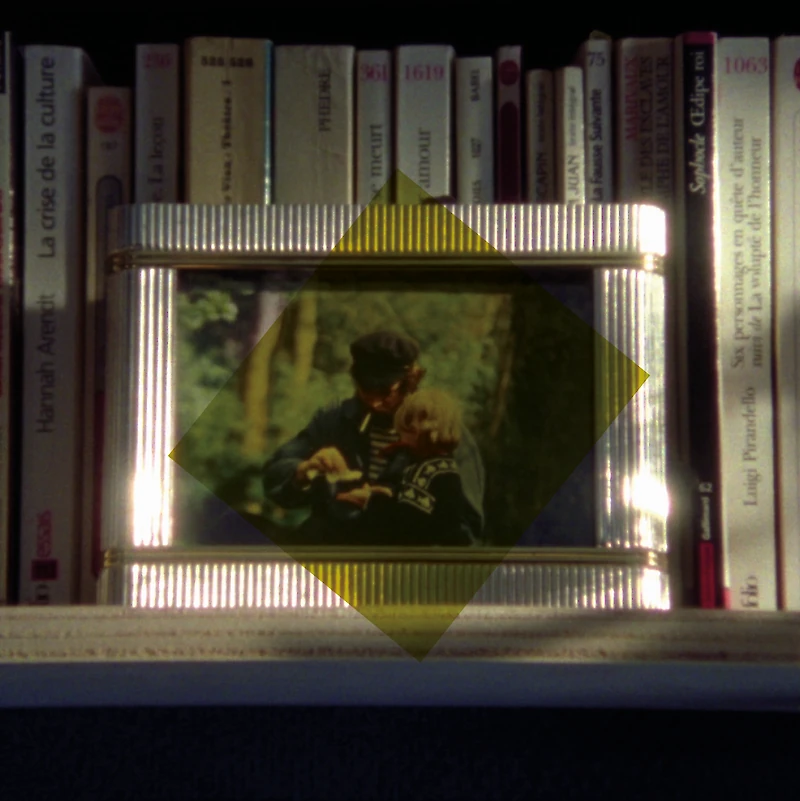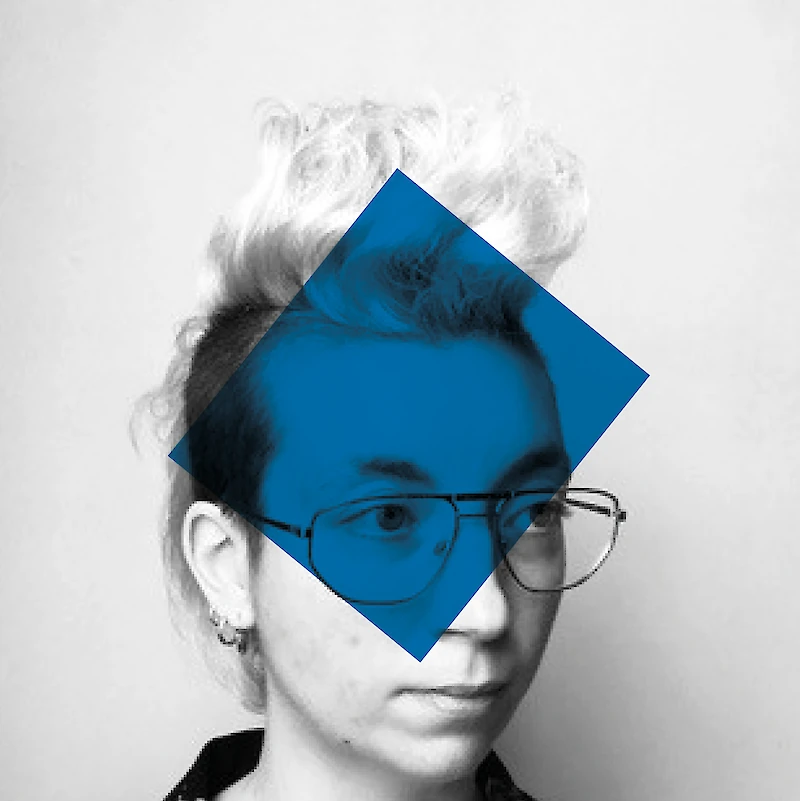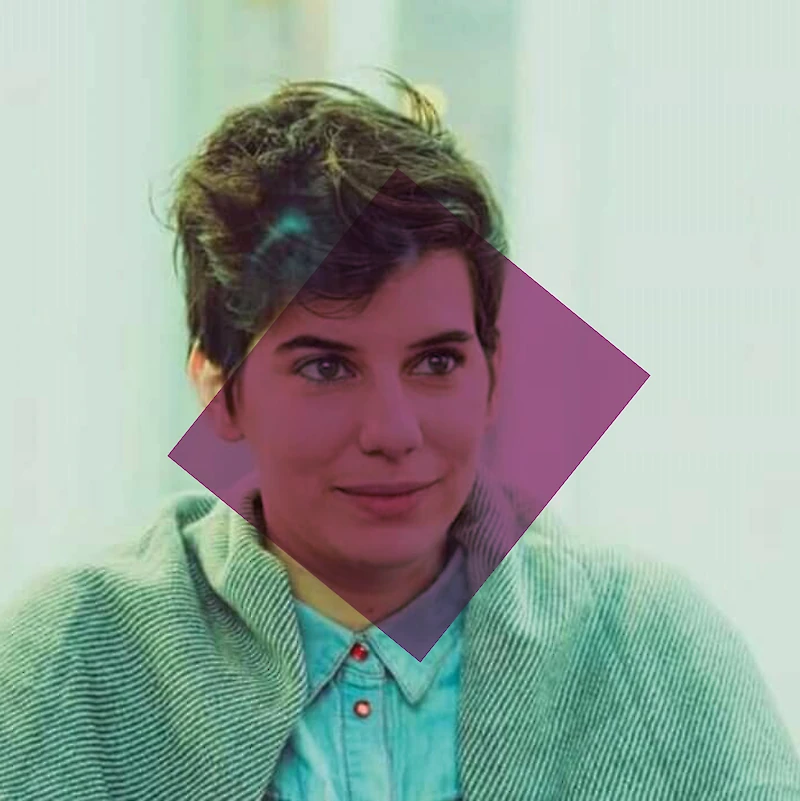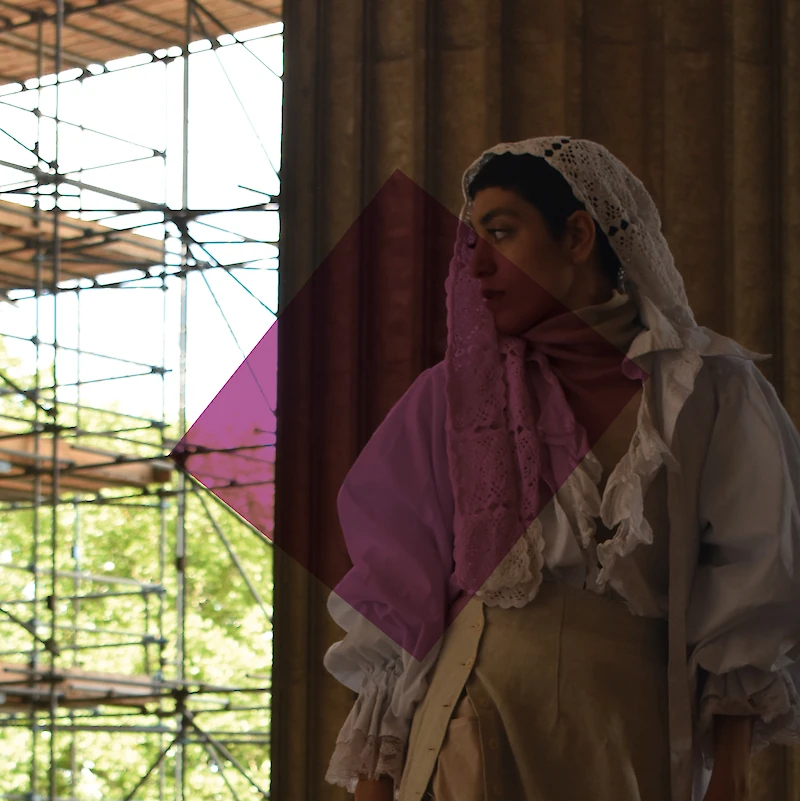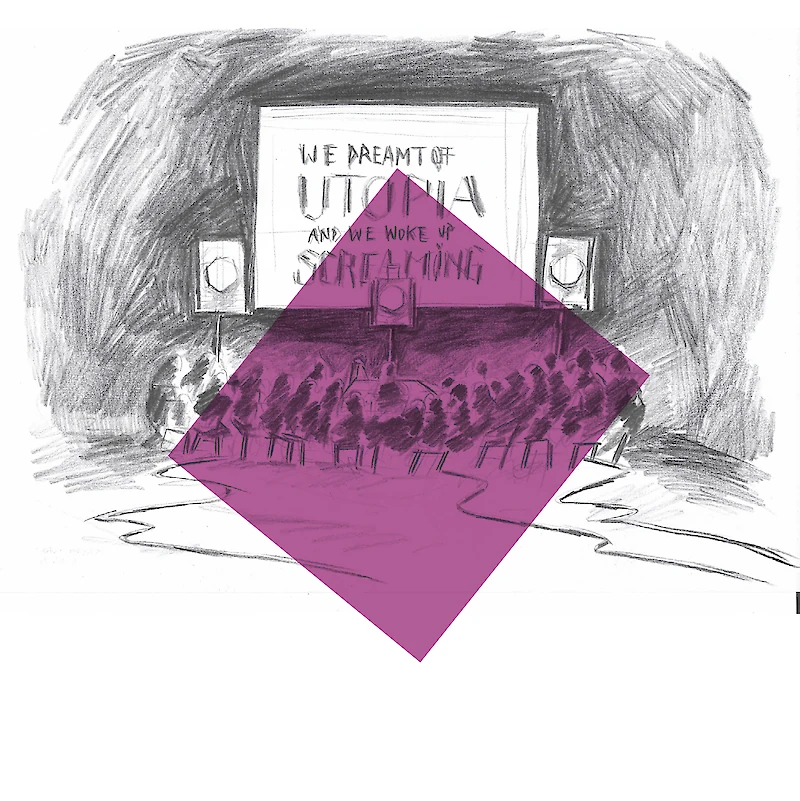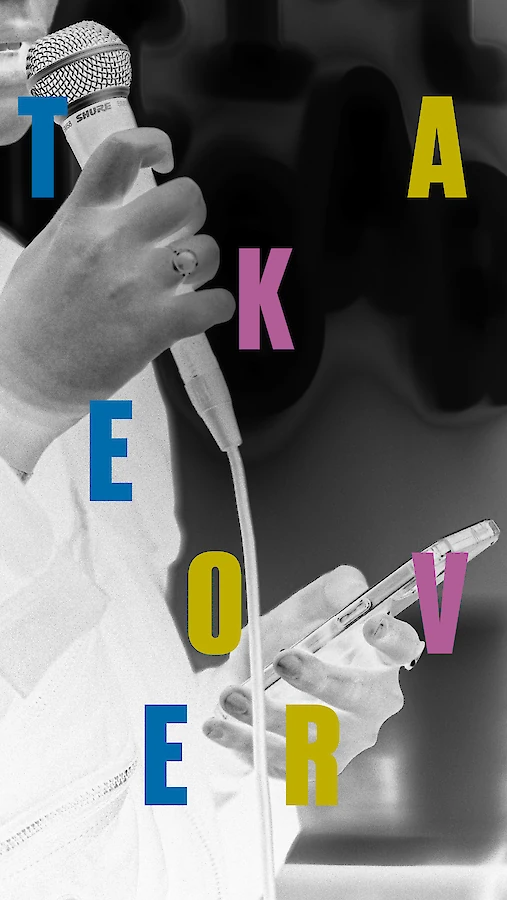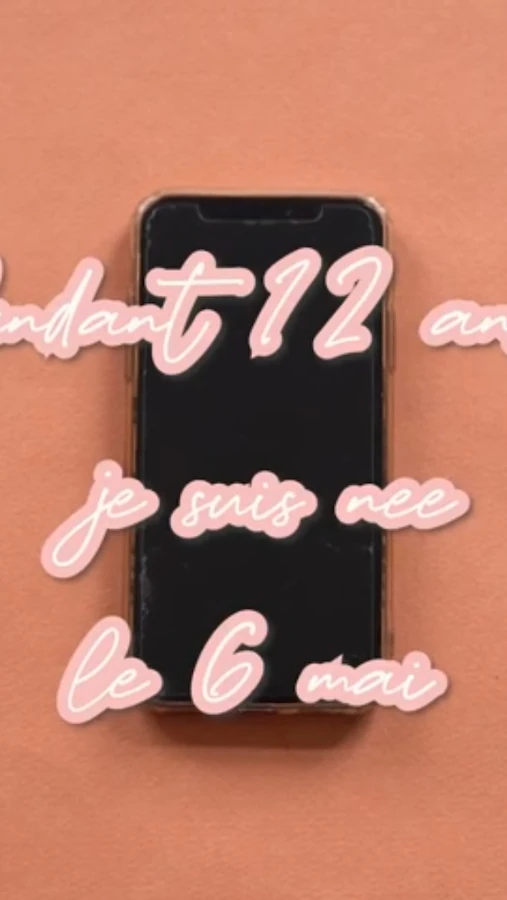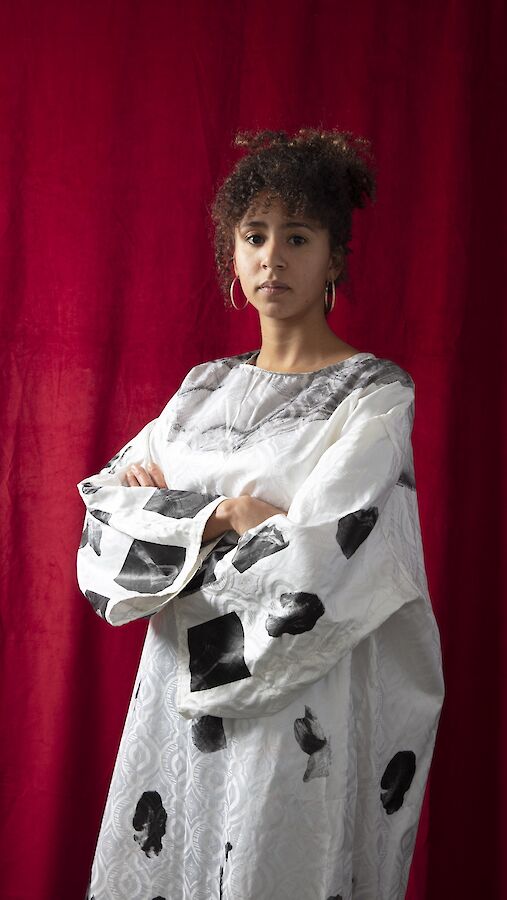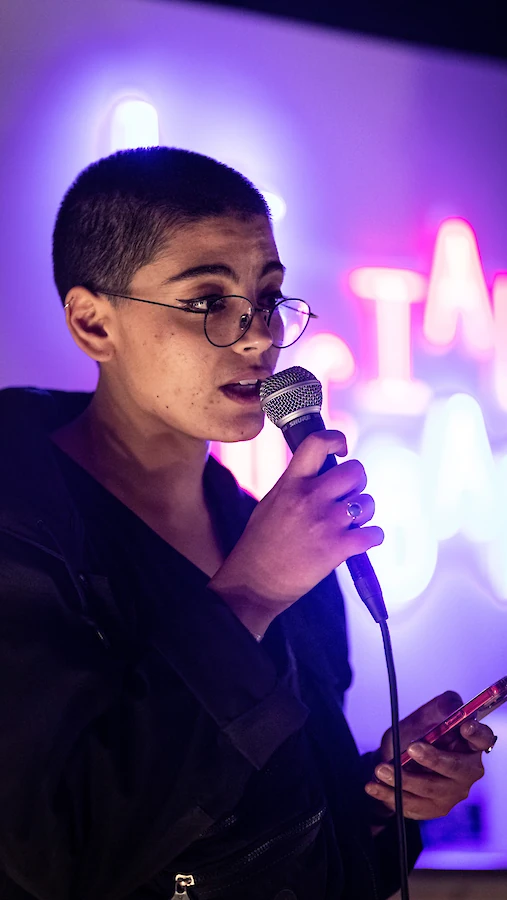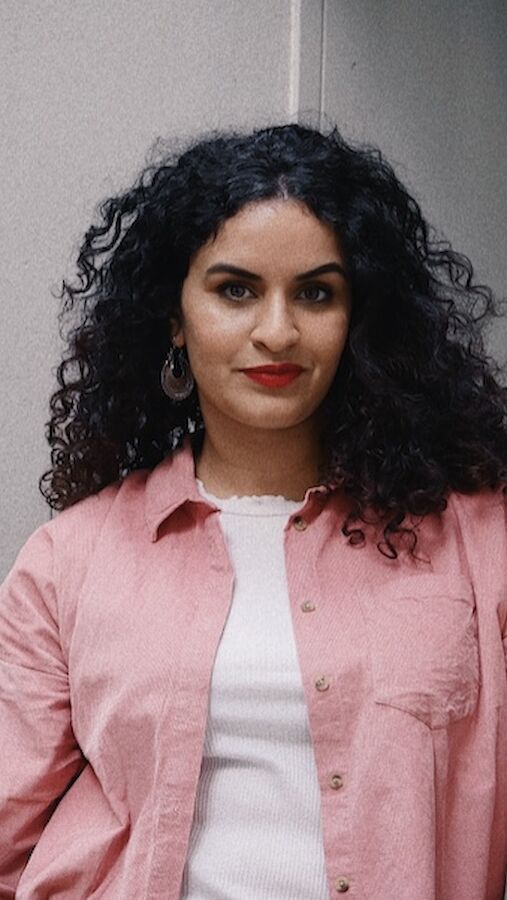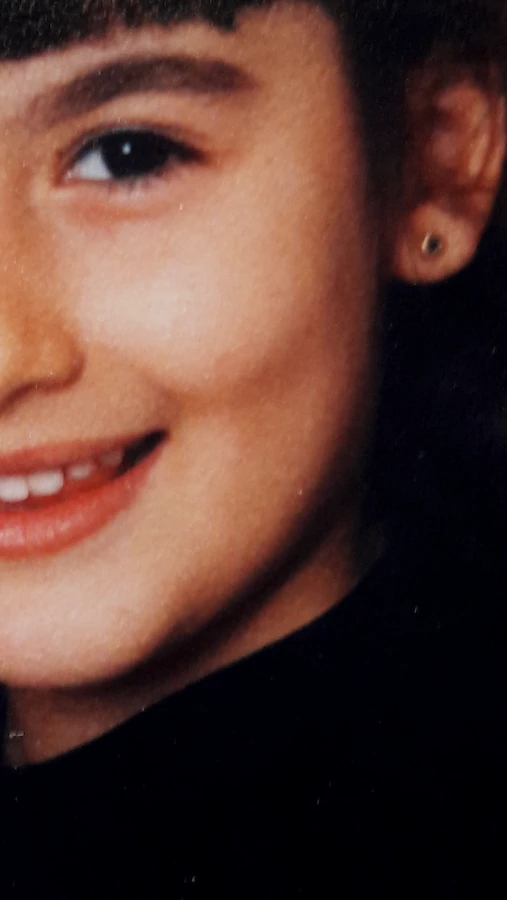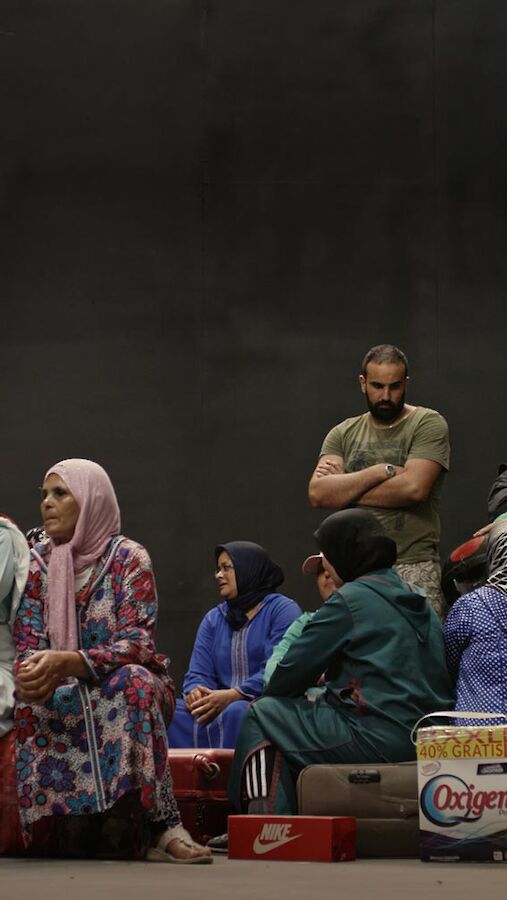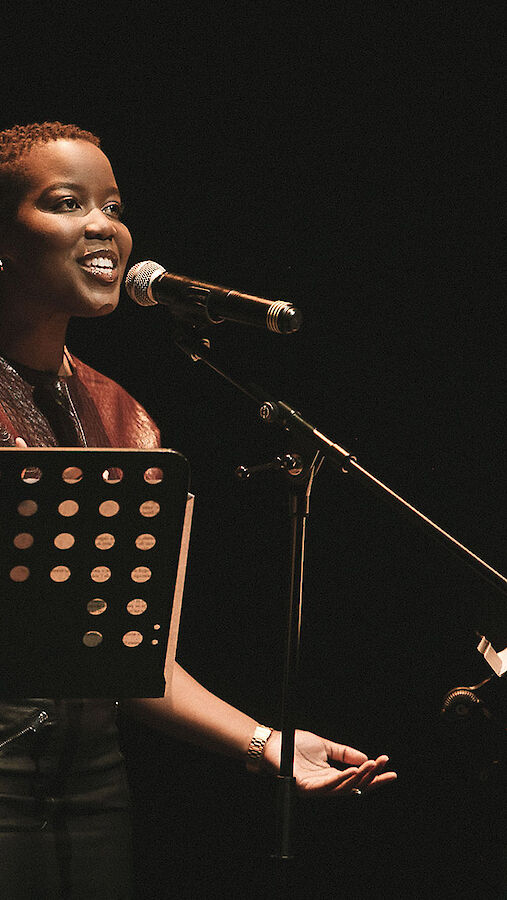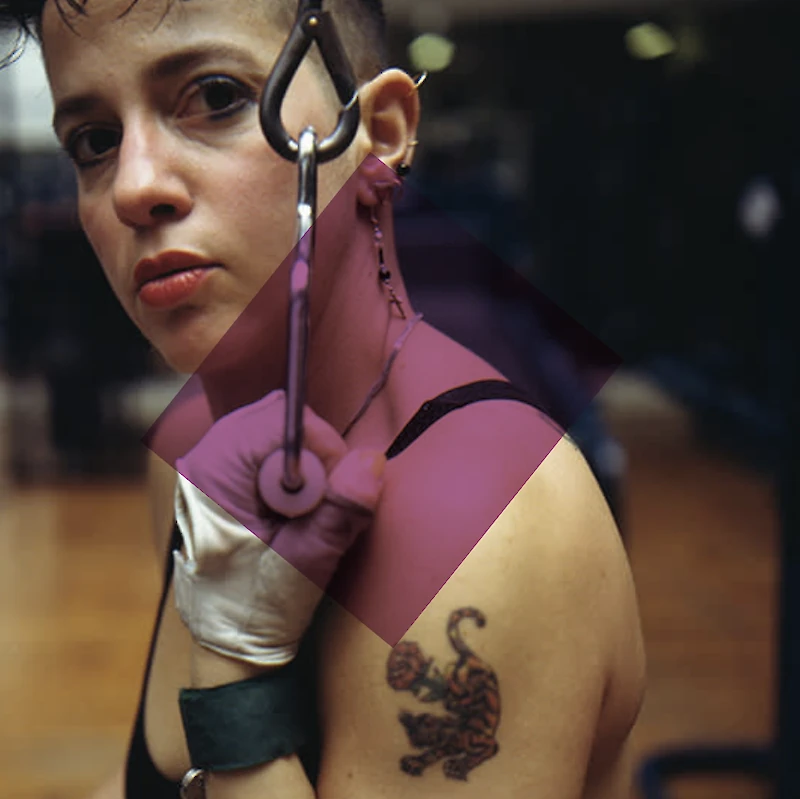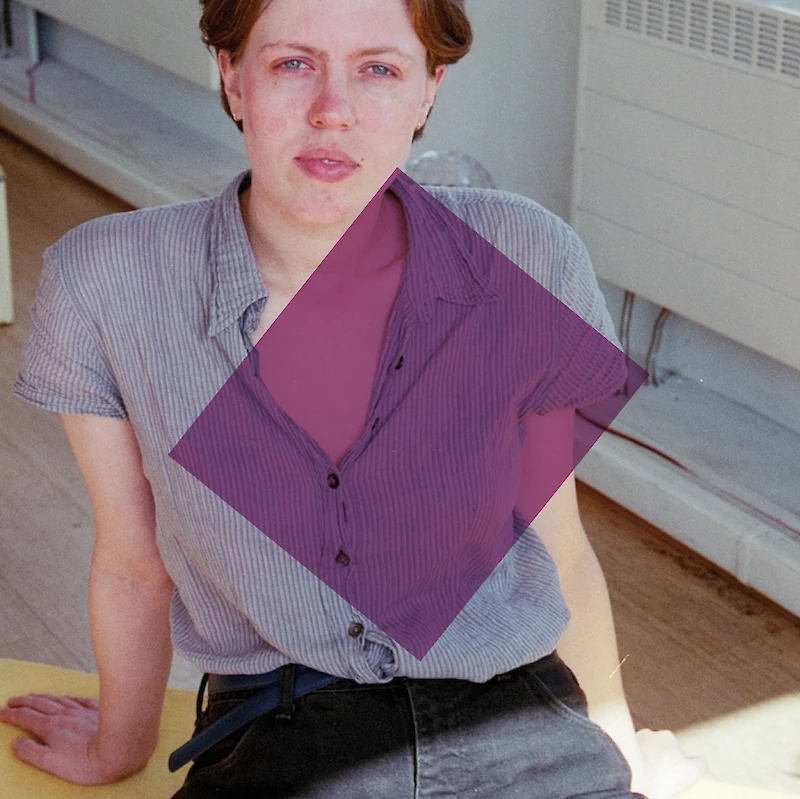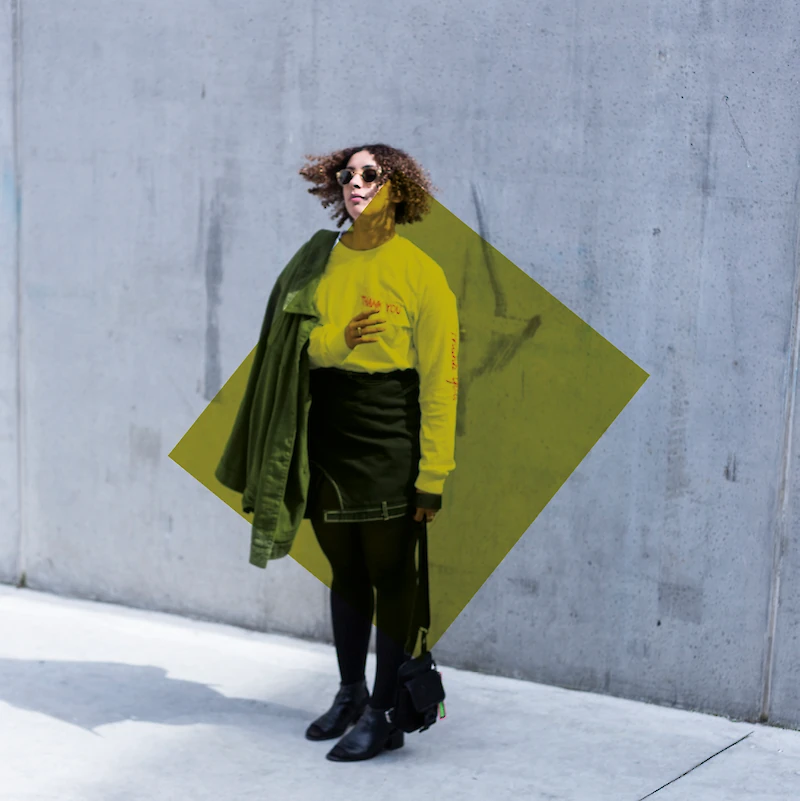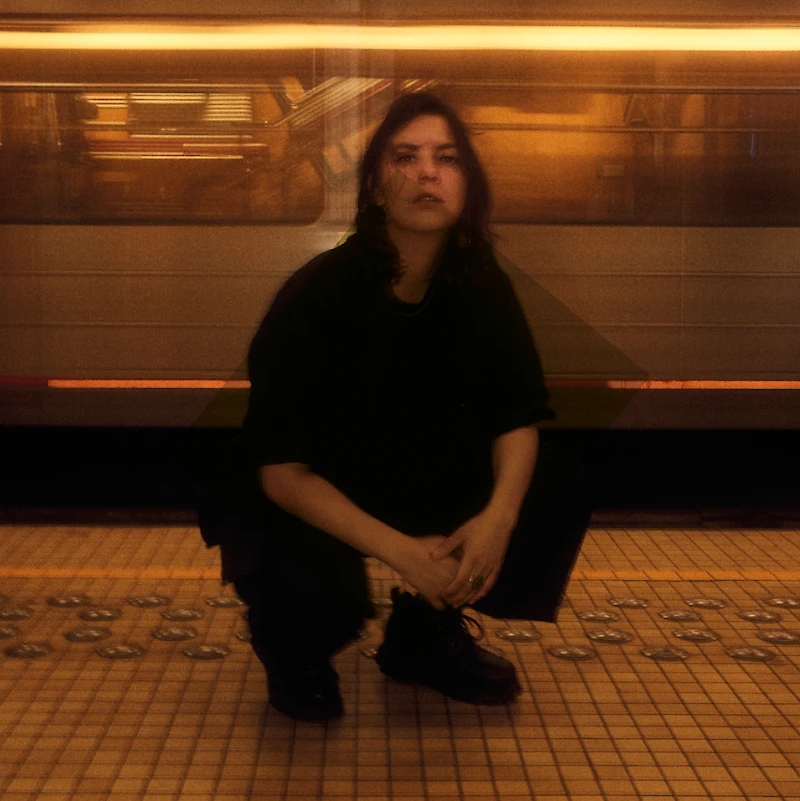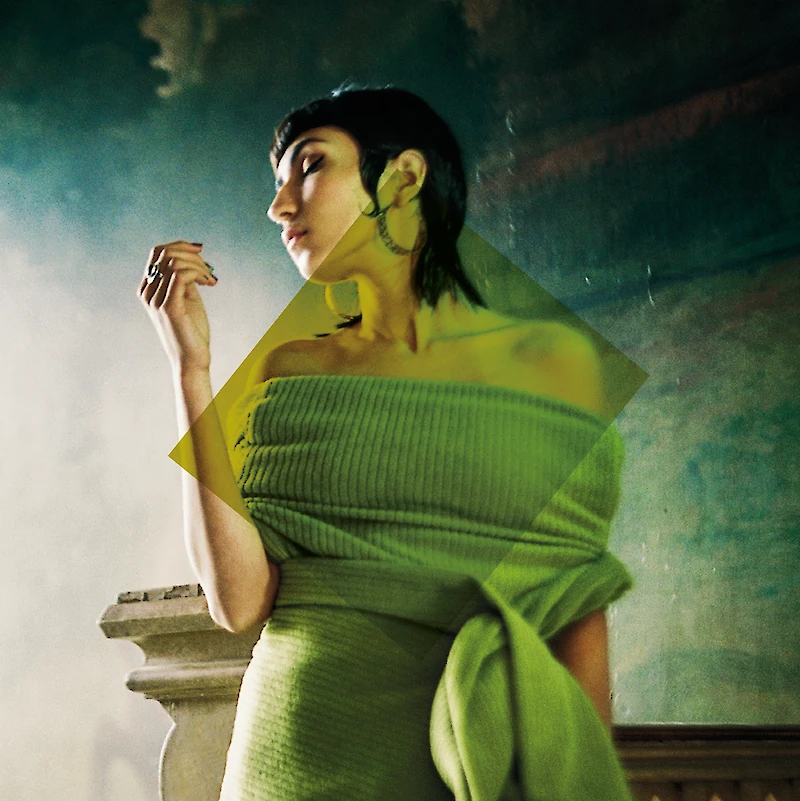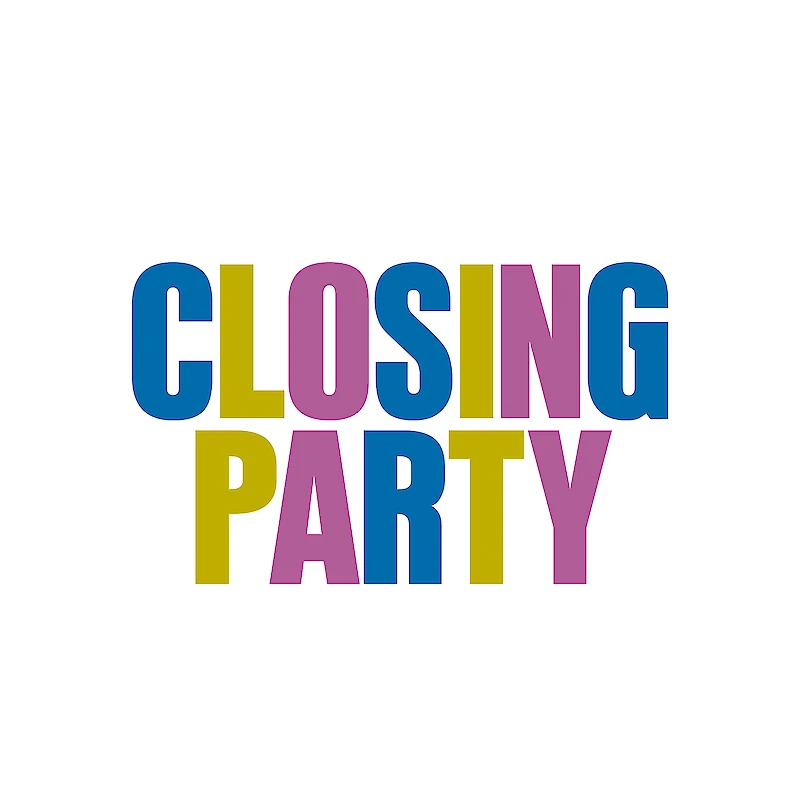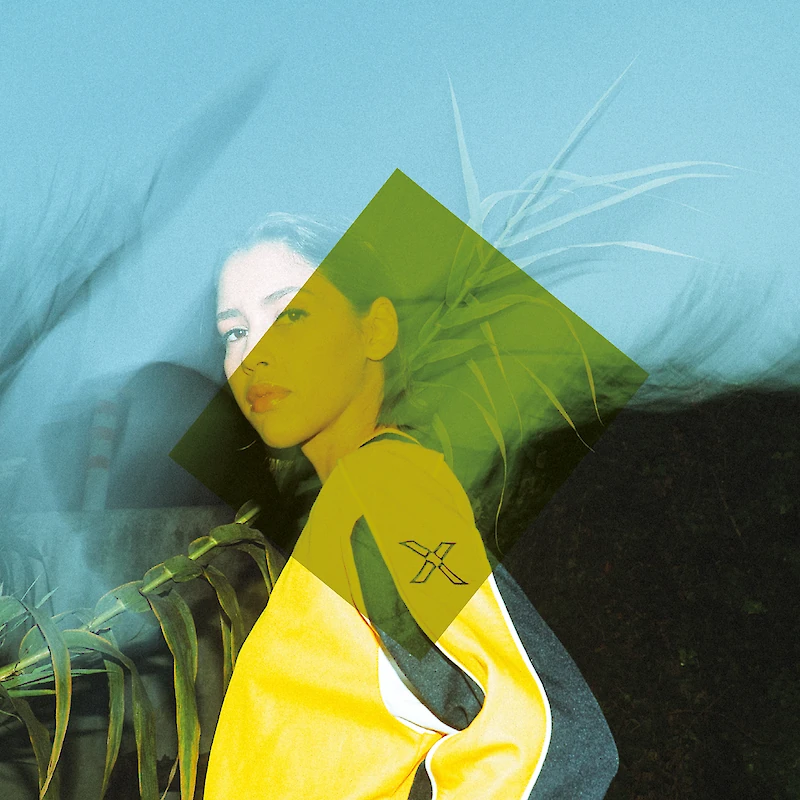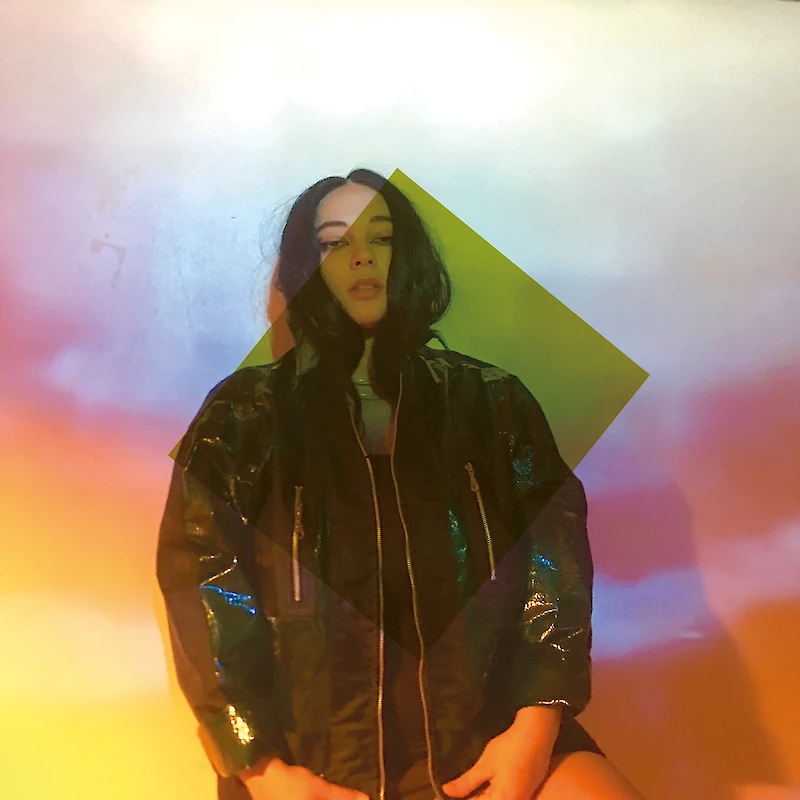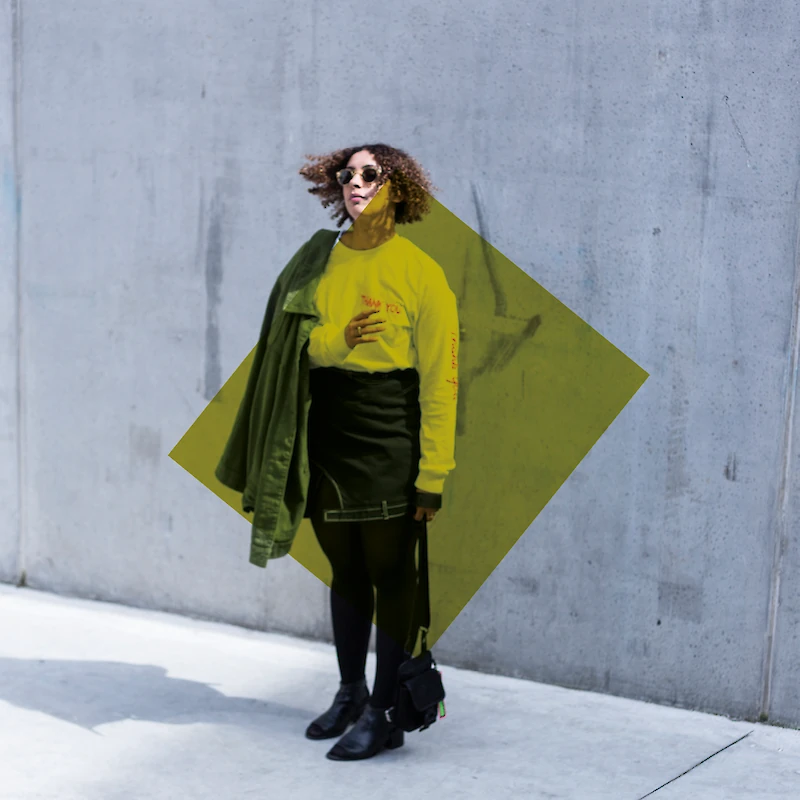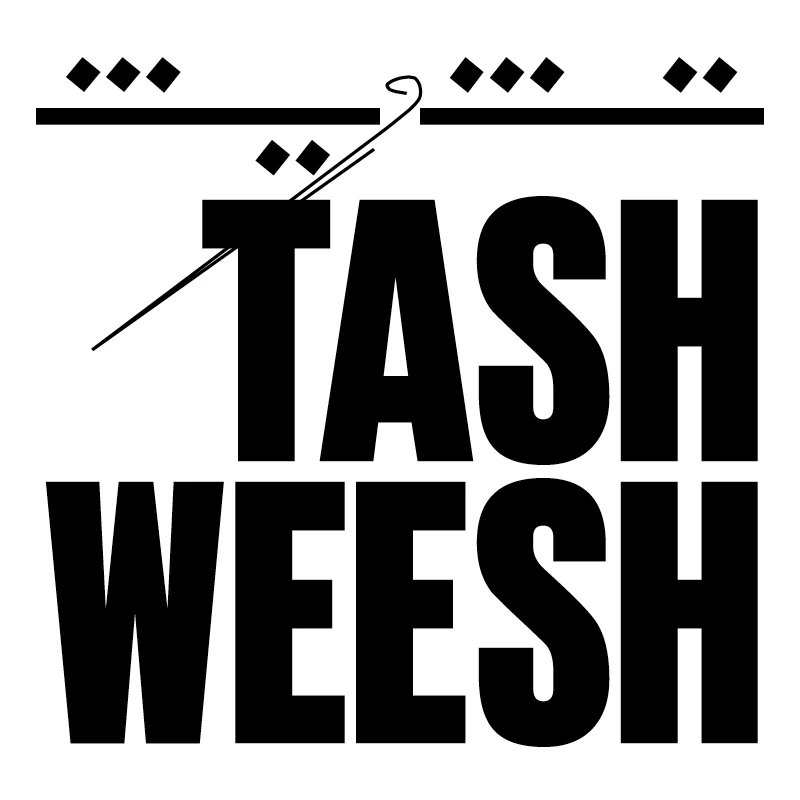Fatima Daas kicked off the second edition of Tashweesh Festival with a keynote that delves into her lived experiences of being a young, immigrant, muslim, queer writer in France.
Lisez le text en français ici.
Hello everybody,
Before I start, I would like to thank all the people who work hard to make this festival happen.
Thank you for inviting me.
I am honored to have the great responsibility of opening the festival.
This is our kind of festival: it's feminist and engaged.
It is very important to be able to reflect together, to discuss our stories, to understand and share our experiences through writing and speaking.
I believe that it is vital, even within "our communities", to open up a dialogue, to start building a collective political analysis, and to renew the desire to fight together.
So there you have it, as you can see, I am very happy to be here with you this evening.
My name is Fatima Daas. I am an author.
I was born in Saint-Germain-en-Laye, a wealthy town in the department of Yvelines, in France. It's near Versailles, which should give you more of an idea.
I lived there for six years with my parents and my sisters. We didn't feel at home, we lived with my father’s sister (my aunt) and her three sons.
During the year 2000 (I remember it was in the middle of my first year of school), my family moved to Clichy-sous-bois which is in the suburbs, in Seine-Saint-Denis (93).
Clichy-sous-bois has one of the youngest and poorest populations in France, and is one of the most marginalized towns of Paris' inner suburbs. It was in Clichy-sous-bois that the urban revolts of 2005 began following the deaths of Zyed Benna and Bouna Traoré. The two teenagers aged 15 and 17 were chased by police to an EDF power station, where, burdened with fear, they were electrocuted. Fear of the police. Fear of being beaten by the police. Fear of humiliation. Fear of death.
I've witnessed ten-year-olds being stopped, searched, and insulted in Clichy-sous-bois. I've heard the media asking us the same questions over and over, expecting the same answers, distorting our stories, and capturing our anger with a smirk.
I have seen what they call "artists" come and set up projects at our expense, in our town, stealing our images, stealing our stories.
Sometimes I wonder who I would have been if my family had stayed in St-Germain-en-Laye.
I wonder if I would have started writing…
And if I had started writing, would my book have had the same impact as it did in France in 2020?
Okay, let's go back to the year I moved to Clichy-sous-bois. I almost had to repeat the first grade, I barely made it through.
I flunked the following year, second grade.
My assignments were often marked in red with things like "unsatisfactory", "try again", or "you need to get your act together".
I never got an A or a B. Only C's and D's.
Not good enough, or failing.
Marks between 0 and 4 out of 10. Between 0 and 8 out of 20.
I felt inferior to the others in elementary school. I’m not sure, but maybe it’s because there were some who dressed better, like those who lived in residential areas or in the smaller apartment blocks, or anywhere besides the high-rises, the towers, the housing estates.
Maybe it’s because I noticed they had Mommy and Daddy, who were there in the evening when they came home, Mommy and Daddy, to help them with their homework, Mommy and Daddy who weren't completely traumatized by war and the exile. Mommy and Daddy who knew how to read and write.
As soon as I knew how to read, I was given the same tasks as my sisters: to read letters to my father. It was everything from the electricity bill, to fines, to bank statements and medical appointments. One day he asked us to fix the remote control, and he had the instructions out as if to say "you'll manage it with this".
But we couldn't fix it, so he gave us his most common response: "You go to school and you still don't know how to do it?!"
He looked genuinely puzzled, every time.
We answered that at school we didn't have a class called "how to fix your father's remote control".
He told us wearily that he didn't understand what they taught us at school.
My father often told us that he had never been to school.
We all went to school. Minimum 5 years of higher education.
In elementary school, instead of getting well-deserved good grades because I had worked hard, I cheated a lot. And I was fine with that.
When I wasn't cheating, I found other solutions.
There were the poems we had to learn by heart and recite in front of the class.
We each had a workbook, the left page with squares, a blank page on the right.
We glued the poems that the teacher gave us on the left-hand page, and on the right-hand page we had to illustrate the poems. My older sister drew my pictures for me. I never knew how to draw, not even a cloud, a sun, a house, a man. Nothing.
From middle school on, I started to get the hang of it.
I got tired of feeling inferior, so I ended up feeling superior. School taught me that lesson, that you can go from the bottom to the top in no time. You can go from being a bad student to a good one. To the student who is better than the others. At school, I became the smart Arab girl, who picked everything up fast and finished everything just as fast, and who was bored and so needed to be kept busy.
I was the one with the attitude, the one who could influence others in a good or bad way. I had the power to help my classmates to excel and at the same time to lead them to stir shit up. I was a handful! I was both the one who succeeded, and the wild one who had to be kept in check so that things wouldn't go wrong.
In middle school, I began to feel more anger as I observed and experienced more and more injustice.
For a while I translated my anger into violence.
I wrote my first texts when I was thirteen.
Before writing, I had a lot of things in my head: images, sadness, shame, and anger, but no words to express them. Everything was trapped in my head and my heart. It wouldn't come out, it just lay there, buried deep inside me.
I started writing at the age of thirteen, when my four-year-old cousin died.
There was a great deal of sadness in my head, but above all there were questions and the need to deal with the tragedy. But I wasn't searching for a solution or an answer to my cousin's death, or to death in general.
I started writing to break my silence, so that I wouldn't suffocate in my own incomprehension. I wrote about what seemed absurd, unthinkable, unclear, and impossible.
I kept repeating this one sentence to myself: "How can you die at 4 years old?"
That's not how things were meant to go, it was against the scheme of things, the scheme of life, as it was explained to me or as I understood it when I was thirteen years old. A child does not die.
So I wrote.
I wrote letters to my four-year-old cousin, telling her about my guilt at being alive, telling her about my days at school, my connection to writing that I could see growing before my eyes.
From then on I just wrote to be able to communicate.
I wrote to my sister when I got kicked out of school for the first time.
I wrote to her every time I did something stupid.
I wrote letters to my dad that I never gave him, that I never read to him, and that he will never read.
I have been writing ever since I was thirteen.
I am an author, and have been ever since I became aware of my connection to writing.
I didn't wait to be published before calling myself an author.
I have been a writer since I started my first text, since I felt the need to keep writing it, and to write others. I quickly felt that writing would be my space, my home, my shelter, and above all that no one would be able to take my freedom to write away from me.
I am an author because I am angry.
There's anger stored in my belly. It’s an anger that looks like a red ball and it grows day by day. Writing is the only thing that keeps it from exploding.
I felt that anger during childhood when I hid my parents' language, my language, Algerian Arabic, because I was ashamed and afraid. I was ashamed of my language and afraid that people would imagine I didn't speak French properly because we spoke Arabic at home. Because I was the child of an immigrant.
I felt that red ball when I was doing what everyone else did before the Christmas holidays in elementary school. I took my paper and pen and wrote a list of presents addressed to Father Christmas. I didn't believe in it at all, so I forced myself, by mimicry and probably out of fear of not feeling integrated in France.
That's what the teacher told us to do, and everyone else did it, so I played along. Deep down, the best present I could ask Father Christmas (or whoever) to give me was to stop lying, to stop feeling different, to stop being ashamed that I didn't celebrate Christmas.
To stop being ashamed of being poor, not being able to give money to the class co-op, struggling to find 2 or 3 euros for school outings, which happened at least once a month...
I felt that anger when I had to keep my gender fluidity quiet because I was too boyish for the school system, not girly enough for my family, not docile enough for the boys. I liked girls too much to be a girl. It was always not enough… not enough, or too much.
The anger has always been there, in a part of my body, clinging and hidden but sometimes anesthetized by love, by sisterhood, or by faith...
It resurfaced in high school.
I was used as a symbol of success in the banlieue, as an example, the embodiment of meritocracy. I represented the girl who succeeded at school, because it’s possible if you just put your mind to it.
I wanted to prove that it was possible to succeed in Clichy-sous-bois. I went with the flow, and ended up in a prestigious school, even though I just wanted to write.
That was ambitious enough already.
Luckily, I had these fleeting moments of comfort like the writing workshops during which I could write with others, share my texts, and believe in my writing. I realized that success is perhaps just finishing a story, finding your voice, your style, and remaining honest.
I felt an immense anger after high school when I realized that the world was nothing but a reproduction of endless inequalities, and that I had been deluded.
Fighting inequality meant generating more inequality.
Over the years, the anger has spread all over my body. Sometimes it goes from my stomach to my esophagus and into my throat where it gets blocked. And then I can't speak. I can't feel anything but the anger that silences me, that makes my blood run cold.
The anger multiplied when I officially became a writer, an author, a public figure, and someone in the media.
It grew and grew as I realised that I didn't go a day without receiving a racist, sexist, or homophobic insult, or all three at once. Either direct insults or outright mocking.
I knew about racism, I knew about homophobia, and I knew about Islamophobia before the publication of my book. What I didn't know then was what great power resided in the act of expressing oneself freely and daring to speak from the heart publicly about these issues.
Two years ago my book La petite dernière was published in France at the beginning of the 2020 literary season.
It is a novel that does not follow an exact chronology. The story functions by variation. Each chapter reveals a different facet of the narrator's story. Fatima, the main character, unveils herself in small strokes to the rhythm of short, tense sentences, interspersed with silence as if linked to irregular breathing.
Each short chapter accentuates the shortness of breath and the urgency to say directly, as easily and quickly as possible, what has been suppressed.
All through my writing project, I have tried to find a voice, a language that makes space for silence.
La petite dernière is a novel written in the first person that tells the story of Fatima Daas, a character at the intersection of several discriminations. She is a young woman who celebrates her thirtieth birthday at the end of the novel. We follow her from her childhood to adulthood, in short excerpts. We go from one memory to another, from childhood, to college, to her group of friends, to her best friend and confidante Rokya, her relationship with the city's isolation, the glances on public transport, writing, illness: asthma, love, family, religion.
It is an explosion, a cry, an urgency, a necessity, a journey to say "I", "I am", "I want", "I love".
A character who confronts the impossibility of being and existing in France.
I wanted to talk about the difficulty of growing up without representation, without visibility, only with self-hatred and shame… about the difficulty to make choices in a world that standardizes us, essentializes us, and doesn't make space for us.
How do you stay silent as long as possible? How do you keep a secret that you are dying to tell everyone, but that no one wants to hear? Can we manage to tell this secret without saying it?
I did not think that my novel would claim to tell, but I tried to restore the feelings that these silences produce on a daily basis in me, what it feels like from the inside to experience simultaneously all kinds of inquisitions.
I tried to bring into existence a story that is often erased, and almost never heard.
If I keep going and try to express how I have felt since the release of my novel, I must first tell you about Faiza Guene.
Eighteen years separate the publication of my first novel from the publication of Faiza Guene's first novel, Kiffe kiffe demain, but in France after eighteen years, we are still witnessing the same process, the same ungrateful treatment of our stories and words by the media.
During these last two years, I have spoken with many journalists and discovered the ideas they had about my book, what they saw in it, and what they understood.
Lesbian and/or immigrant women researchers began to analyze the media reception of La petite dernière, as was the case for the author Faiza Guene, and other women with immigrant background.
It took me several months and many conversations to write the first words about what happened. To come back to my text, to come back to the feelings I was searching for in front of my computer screen. What did I want to do, to say?
The questions from the media were, barring a few exceptions, oriented towards Islam and homosexuality.
In general, the questions that came up most often were:
“How do you reconcile Islam and homosexuality?”
“What was the reaction of your family?”
“Can you really be a lesbian and a Muslim?”
“What was the reaction of the people living in Clichy-sous-bois? Or from the Muslim community?”
“What is your relationship with Islam?”
“Does your text resemble rap, or verses from the Koran?”
“What led you to writing?”
"Is the first-person narrative also a way to give a voice to queer Muslim girls?"
"Your book was written as part of a creative writing master's degree. How was the creative process?"
"The narrative is punctuated with definitions, translations. How important is word choice to you? Is this a remnant of your prep school years?"
"The book also depicts tense family relations with a violent Algerian father who is unaccustomed to any manifestations of tenderness and love..."
When there aren't any questions, there are always the same remarks, the same intentions, some more direct with unabashed racism, others with more subtle turns of phrase.
There are many passages in articles that examine my educational background to justify the success of my book, but I'll only quote one.
"In high school, encouraged by her French teachers, she participated in writing workshops with writer Tanguy Viel. It was there that she began to write fiction."
(Incidentally, I was writing fiction long before I was in high school.)
There is also the fantasy that I abandoned Clichy-sous-bois to protect myself from the attacks I might have received from the gangs in my town.
"When she graduated from high school, she left Clichy-sous-Bois to study for a degree in literature in Paris, before joining the master's program in creative writing at the University of Paris 8 in Saint-Denis.
Since then, the book has benefited from the "sponsorship" of the writer Virginie Despentes, whom she met during her master's degree. "The young writer curses the family, her mother too housewife, her father having too much male attitude".
"Believer and lesbian: such is the major dissonance with which the narrator seeks to learn to live."
"Believer and lesbian: with a fearless prose, the author seeks to live with the irreconcilable."
"Not in rehab yet, this beurette from Clichy-sous-bois, fervent but attracted to girls, delivers unspeakable truths."
"A girl from the banlieue between two cultures"
"The teenager quickly constructs a dual culture between trips "back home", family preaching, and her peers' hip-hop influence. In high school, she has difficulty accepting her homosexuality and participates in writing workshops led by the writer Tanguy Viel, 'no doubt to overcome certain things that were left unsaid in (her) family.'"
"A novel chanted like a slam."
"Her name is Fatima Daas, her mother reigns in the kitchen and her father brutally wields the belt on his daughters' backs."
For the past two years, I rarely felt like an author, but I did feel indebted. Lucky, I was lucky. I was lucky to fill the young author quota – sometimes young author from the banlieue, sometimes young North African, sometimes lesbian and Muslim. I had become the object of polemics, the one to corner, to destabilize, to crush, to silence. Our stories are disturbing, they cannot be universal, they are inevitably communitarian.
I was indebted and ungrateful. I didn't say thank you enough to France.
Thank you to the country of human rights, for giving me a voice, for allowing me to speak, for making me the new literary season's revelation, even though they don't consider me a real French woman, and even less so an author. Simply put.
I am angry that we always ask the same people not to complain. To keep the exhaustion quiet. But the truth is that my word is not acceptable; it is cut, it is hammered by racist, normative, Islamophobic looks. And I see, I know it today… There are many of us who know it and who are no longer afraid or ashamed to talk about it.
Writing this novel and talking about it costs me every time, but I don't have the right to say it. So I'm going to say it.
The republic education did not make me, it did not forge me. No teacher brought me to write, no teacher gave me a taste for writing, none saved me. I wrote because it is my only weapon to fight against the silence imposed on me.
Indebted, ungrateful, and a spokesperson.
Soon enough, I became the spokesperson for young lesbians, immigrants, Muslims, as if my story was the same as all North African queers, as if there were not several paths, as if we were one, as if we were the same.
We are confused with each other, in festivals, we meet between women with immigrant backgrounds, because for them we tell the same story, to them we have the same lives.
The anger is there. Every time. With each awareness. And I am tired. And we are tired. No, we are not victimizing ourselves. We are exhausted and our fatigue is the same.
I had become the homophobic lesbian in the universal imagination.
When you're Muslim, you are inevitably homophobic, even if you are a lesbian. When you are Algerian, we are asked to thank France for welcoming us. When you are a lesbian, you must be white and atheist.
When we are from the banlieues, we must have been saved by a white teacher.
You can never be what you are and be seen as such.
There is not a day without which I am brought back, to my religion, to my family, to my Algerianness, to my lesbianism...
The problem is that I arrived Arab-looking, my hair cut short, my body of a lesbian boy, my body of a girl from the banlieue, I did not thank France, nor the school of the republic and its teachers, nor any man, nor any white woman who would have saved me from the condition of Maghrebi woman, subjected to the father, and to the Islamic religion.
I did not spit on Islam, I rather stated my love.
I did not thank anyone, I arrived with my Algerian dignity, my pride, my fragility, and especially with the will to remain honest, to keep my integrity, not to let them get back at me, not to let them make me say what I don't want to say, nor to put me in any box. Not to let them reduce me.
To erase me.
Make me invisible.
I don't want to let them win.
I'm going to keep writing and killing the mood.
I have this need for revenge inside me. Revenge for the teenager I was, the one who kept quiet, the one who had no representation to cling on to...
I was missing this story, so I wrote it.
I want to tell this teenage Fatima that I love her, that she has nothing to be ashamed of, that she will fuck everything up.
There are many of us who will fuck it all up!
So I'll finish by thanking all the people who read me, who believe me, who write in turn, all those who take risks every day, who can't stand being harassed but who don't give up, thank you to those who don't say anything now but who will break down doors soon, thank you to the teenagers of today who are doing what we couldn't do before, who don't let anything pass.
Thank you to those who were there when it was not obvious, and who continued to be there when it was.
Thank you to all those who showed the way, all those who did the work before we arrived.
Thank you to all of you for being here tonight.
BIO
Identifying as a Muslim, feminist, and gay writer, Fatima Daas is becoming the new voice of her generation. She grew up in the majority-Muslim Parisian banlieue of Clichy-sous-Bois, with her parents and sisters, who were all born in Algeria. She’s the only one born in France, the youngest child in the family. In high school, she rebelled, claimed the right to express her ideas and wrote her first texts. Fatima was noticed for her writing talent and began studying literature. La Petite Dernière (The Last One), her first novel published in 2020 is now translated into nine languages.
As part of Tashweesh Festival in Beursschouwburg Brussels, 28 SEPT - 8 OCT 2022
The lecture is co-funded by the Creative Europe Programme of the European Union
